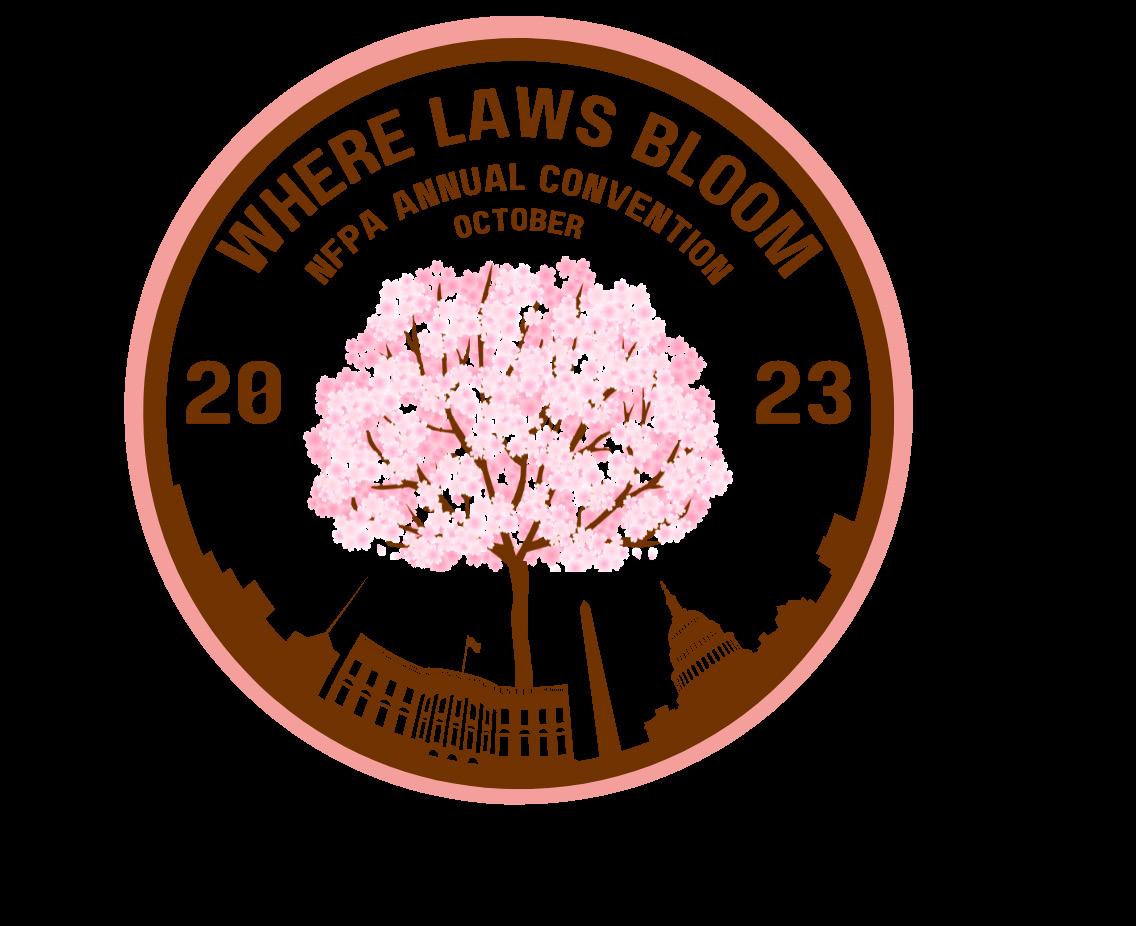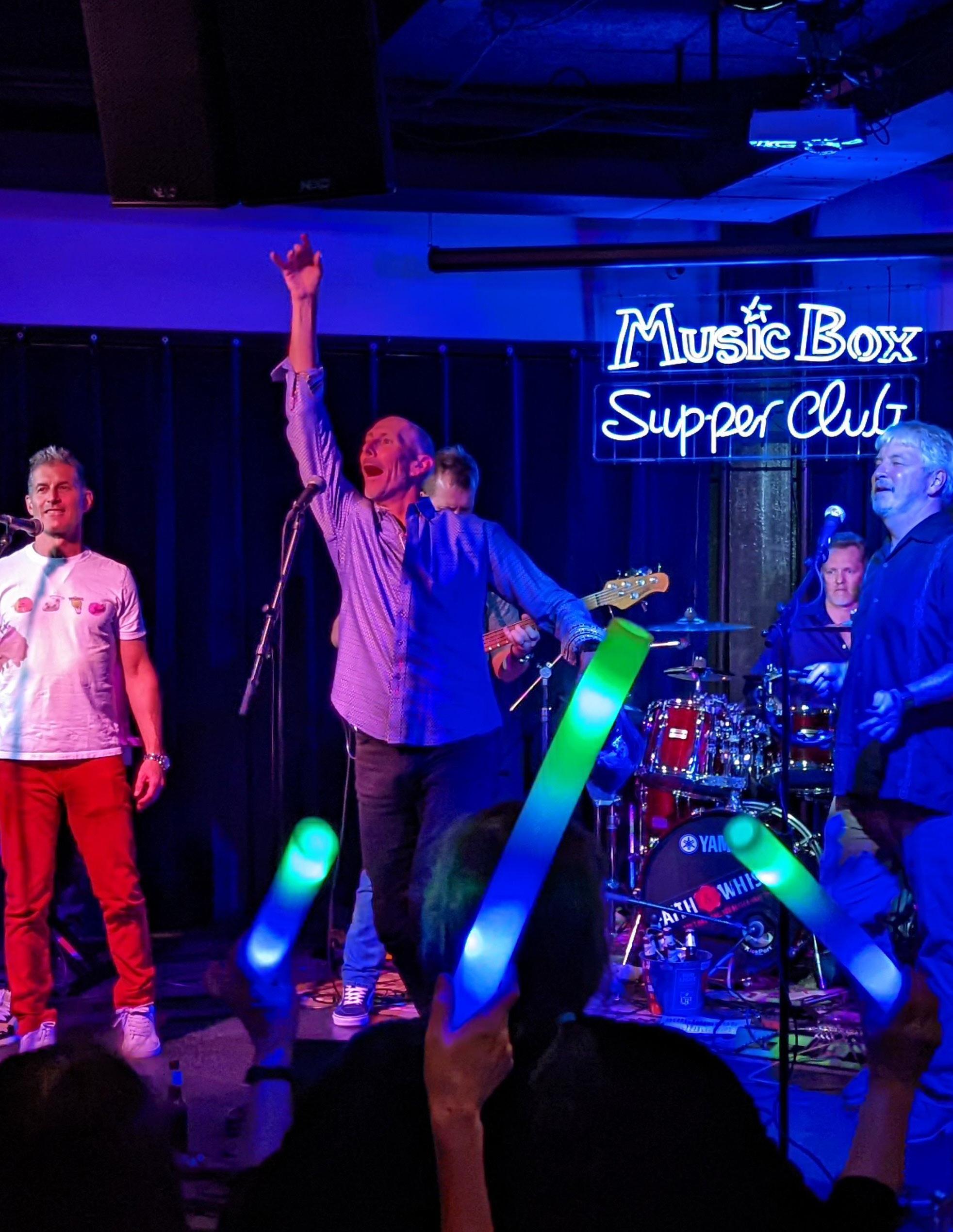
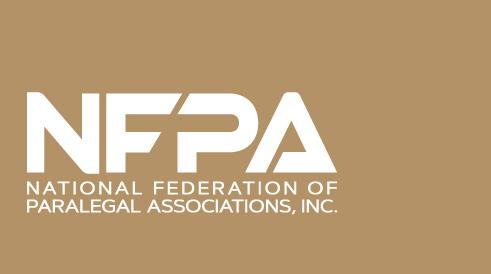



PRESIDENT’S MESSAGE 2 ABOUT THE NEW LOOK.............................................. 3 STATE OF THE FEDERATION ADDRESS 2022 4 RECAP OF THE 2022 NFPA ANNUAL CONVENTION - PARALEGALS IN THE LAND.......... 5 IN HER FOOTSTEPS 6
CONVENTION FIRST-TIMER 8 IN-HOUSE PARALEGALS UPDATE 9 INDIVIDUAL PRO BONO AWARD 17 OUTSTANDING LOCAL LEADER AWARD 18 STUDENT SCHOLARSHIP WINNER 20 MEET THE NEW NFPA DIRECTORS 21 NEW CREDENTIAL HOLDERS 24 UPSOLVE INC V. JAMES .......................................... 26 HOW TO BUILD A SUSTAINABLE DIVERSITY, EQUITY, AND INCLUSION ROADMAP 31 BALANCE..................................................................... 34 SAVE THE DATE 36 ON THE COVER: The convention Keynote Speaker Ohio Supreme Court Justice Michael P. Donnelly also led the band at the Friday Night Social Event.
Why do I choose to be a part of the National Federation of Paralegal Associations, Inc. (NFPA®)? If you had asked me back in 2010 while I was completing my last year of paralegal studies, I would have answered your question with a question “What is NFPA®?” Had you asked again when I first became a member of the Paralegal Association of New Hampshire (PANH), in October, 2011, I would have answered that same question with a statement; “Well, because PANH is a member I am automatically a member.” It was not until I became involved at the national level that I realized the true benefits, not only to myself personally and professionally, but also the benefits to my local association and that of the paralegal profession. I can honestly say that is when NFPA® became my passion.
I was a stay-at-home mom. As my children got older, I realized it was time to reinvent myself (a/k/a “What do I want to do when I grow up?”). I went back to school, parttime evenings, to become a paralegal. When I graduated in 2011, thinking about the networking benefits of belonging to my local paralegal association, I quickly joined PANH. During my very first meeting, the first after their annual elections, Catherine Allard, then the PANH President & Primary Delegate to NFPA®, asked if I wanted to become the NFPA® Secondary. After she explained what that meant I hesitantly agreed “as long as I did not have to travel.”
I did not realize it at the time, but Cathy (as most know her) was succession planning.

In the Spring of 2012, I attended the NFPA® Region V Spring Meeting in Clifton Park, New York, alongside Cathy. The local associations of Region V (the New England
States of VT, NH, MA, CT, RI, and NY) had come together to brainstorm ideas for leadership development, membership recruitment and retention, continuing legal education and fundraising efforts within our local associations. We discussed methods of advocating for the profession on the local, regional, and national levels. We also discussed our certification exams. I can still remember that first discussion regarding the pathway to NFPA® ’s Paralegal Advanced Competency Exam (PACE®). This was the first time I realized that the associations that belong to NFPA® had a voice in the qualifications for PACE® and the PCCE® (Paralegal Core Competency Exam).
Cathy and I spent the entire three plus hour car-ride home talking about all the new ideas we were bringing back to PANH to improve upon our own methods for delivering continuing legal education to our members, new techniques with regard to membership recruitment, and even ideas for building a better website. We also brought our association a couple of different fundraising ideas. This was invaluable information for our local board that we would not have obtained on
our own without the conversations that took place around that conference room table during that Saturday in April, 2012.
My year as the NFPA® Secondary Delegate continued, and although I did not attend the 2012 Annual Convention & Policy Meeting in Anchorage, Alaska, I was very much involved in reviewing and disseminating the Agenda Topics and Bylaw Resolutions to our local Board of Directors. We reviewed each topic and decided a course of action with regard to how Cathy would vote on each. I was very impressed with the process.
Had these experiences not been enough to sell me on being a part of NFPA® I had the great fortune of attending the NFPA® Joint Conference in 2013. Each Spring NFPA® hosts a Leadership, Certification, and Regulation Conference. Again, individuals from across the country came together to attend day-long education tracts to hone their leadership skills, learn what was new with regard to regulation across the country, and learn skills as they relate to taking the PACE® and PCCE® exams to either take the exam themselves or to enable their association to lead study groups to assist others in taking the exams.
In October of 2012 I became the NFPA® Primary Delegate for PANH and served for the next three (3) years. I had the honor of serving the following four (4) years as the NFPA® Region V Director. I will always value the friendships I have made as well as the mentorship and support I have received from the local association leaders I have worked with as well as the NFPA® board members (past & present) that I have had the privilege of working with throughout the years.
There are also tangible benefits of membership with NFPA® which range from the subscription to the National Paralegal Reporter, member discounts on NFPA® affordable continuing legal education webinars, member discounts
received through BenefitHub, and networking with like- minded individuals that also share my love for this profession.
Professionally, I have been able to reach out for assistance with out of state deeds and probate matters from paralegals in California, Indiana, Vermont, Rhode Island, Connecticut, and Florida. All of whom I have connected with because of my association with NFPA®. I don’t think that paralegals on the local level, who are not involved at the national level, realize that they can network in this way. If you need a contact within a state that has a NFPA® member association you need only ask someone on your local association’s Board of Directors for assistance in connecting nationally. I am sure they would be happy to assist. I know that my boss appreciates that I have these connections.
I had also learned soon after I was hired at Frasca & Frasca, PA in January of 2017 that my involvement with PANH and NFPA® was what tipped the scale in my favor. The paralegal that was included in my hiring process told me that she figured that I “must be serious about being a paralegal if I belonged to two paralegal associations”. LOL!
If you were to ask me today “Why NFPA®?” I would say that being a volunteer and a member of this incredible member driven national paralegal association is a win/ win and I know that someday when I look back on my time serving NFPA® I will be proud that I played a small part in the advancement of the paralegal profession.
JOSIE A. ESTES NFPA PRESIDENTPublisher: National Federation of Paralegal Associations, Inc.
Managing Editor and Advertising Manager: Rachel Daeger, rdaeger@ raybourn.com
Postmaster: Delivered to current resident or occupant as addressed if possible.
Publishing Policy: Articles printed in the National Paralegal Reporter express the opinions of the individual authors and do not necessarily represent the formal position of NFPA. Acceptance of advertising does not constitute NFPA endorsement.
National Paralegal Reporter, ISSN 1058-482X, is published quarterly for $33 per year by the NFPA, 400 South 4th Street, Suite 754E, Minneapolis, MN 55415; call 317-454-8312; or email info@paralegals.org. Readers are invited to submit article queries, material for consideration for publication, and replies to previously published articles to vpdmkt@ paralegals.org. For information about article and advertising guidelines and deadlines, go to: www.paralegals.org/ i4a/pages/index.cfm?pageid=3285 .
All materials are subject to editorial revision. Periodical postage paid at Berne, IN and additional mailing offices. Copyright © 2022 National Federation of Paralegal Associations, Inc. All rights reserved. National Paralegal Reporter, NFPA, PACE Registered Paralegal, RP, PACE, the PACE design logo, NFPA - The Leader of the Paralegal Profession and the NFPA design logo are all Registered Trademarks/Service Marks of NFPA; NFPA - Your partner in your profession, PACE – The Standard for Excellence, Paralegal CORE Competency Exam, PCCE, PCC Exam, CORE Registered Paralegal, CRP and PCCE design logo are Trademarks/Service Marks of NFPA. Corporate Sponsor logos and CLE provider logos used with permission.
Delegates, Board Members, distinguished guests, and observers. Welcome to the 2022 Annual Convention and Policy meeting hosted by the Cleveland Area Paralegal Association.
The world has changed so much since we last saw each other. We have all been through some incredibly difficult times and came out on the other side. Standing here, in this room, I know that even though we are forever changed, our commitment to the profession and NFPA and our colleagues has not.
I want you to know that being here with you all feeds my soul. I will leave this meeting feeling invigorated and reminded both why I love belonging to and serving NFPA and why I love being a paralegal. My wish is that each and every one of you leave feeling recommitted to our profession and organizations.
My term as President is quickly coming to an end. It has been an incredible journey and I am honored to have served you in this role. I want to take a moment to honor these individuals sitting before you. This board has worked very hard and navigated some difficult times in service to NFPA. We have done our best to serve this organization and pave the way for the future of NFPA.
During my tenure as President, we have seen a pandemic, a shift in work force and a shift in priorities. We have journeyed into NFPA 2.0 and beyond. I hope that NFPA will continue to stretch and grow and become even stronger. I believe we can get there if we commit to focusing on our profession and the heavy work that lies ahead. We must remain diligent in our efforts to access to justice, DEI, increasing our membership within our associations and growing our local leadership in order to grow leaders within the Federation.
We should leave here today with the words from yesterday’s Keynote Speaker (and last night’s band member) Ohio Supreme Court Justice Michael P. Donnelly. In short, he said he always asks, is there a better way to do things? Never be satisfied with the answer you receive from some.
I encourage you to go back to your home associations and start the same conversation. Is there a better way to do things? I encourage you to speak with other associations and brainstorm with them on ways to make things better for our profession.
As I transition from President to Board Advisor, please know that I will continue to be a servant leader. I will work to continue NFPA’s efforts to improve the profession and assist with the growth of this Federation.
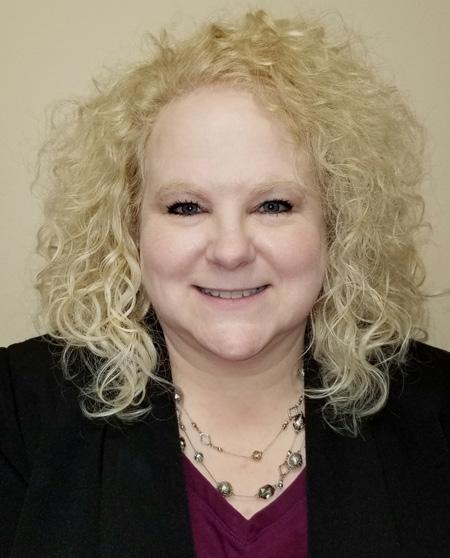
The 2022 NFPA Annual Convention in Cleveland Ohio has come and went. Delegates, members, vendors, exhibitors, speakers and sponsors descended upon the city of Cleveland from September 14 through September 18 and enjoyed all the city had to offer. Our MLB Team, the Cleveland Guardians were in town and many attendees had the pleasure of attending a game and enjoying the cuisine offered at the ballpark. If you were lucky, you attended the game that went 16 innings and ended in a Guardians win!
Convention kicked off on Wednesday night with a Welcome Reception held by CAP at the Cleveland Metropolitan Bar Association. Attendees were given an opportunity to come and enjoy a drink and some appetizers in a casual environment.

On Thursday, attendees had a variety of CLEs to attend, including a track dedicated to In House Paralegals. In addition to the CLEs, attendees had the opportunity to attend four workshops as well.
The Keynote Speaker, Justice Michael Donnelly, was a pleasure to listen to. Both when he spoke at the Friday lunch and when he played his guitar at the Friday night social event. The Music Box Supper Club, on the bank of the Flats in downtown Cleveland, provided attendees an outside patio where they could sit and enjoy the view of the Cuyahoga River and the boats motoring by. Attendees enjoyed passed appetizers and dinner. Once the band Faith and Whiskey started playing, the dance floor remained full until the last school bus came to drive everyone back to the hotel.
The CAP convention committee chose the Cleveland Kids’ Book Bank to be the 2022 annual convention charity. The Cleveland Kids’ Book Bank opened its doors in February 2016 to receive, manage and distribute truckloads of books to children in need. We were honored to have Ron Soeder, Kids’s Food Bank Board Member, speak at Thursday’s lunch about the Cleveland Kid’s Book Bank.
The Cleveland Association of Paralegals and NFPA would like to thank the delegates, vendors, sponsors and all attendees for helping to make the 2022 NFPA Annual Convention in Cleveland a success.
On Saturday, September 17th, two women arrived together at the Westin Hotel in Cleveland, entered the hotel, took the elevator to the 6th and registered for the NFPA 2022 Annual Meeting. The surprising thing was that one of the women was Zoe, 26 years old from Colorado and the other was Dottie, 85 years old who had lived in Ohio her entire life. What was the connection that brought these two to this conference?
Back in 1971 Dottie had been working at a large, prominent Cleveland corporate law firm for five years as a legal secretary. The paralegal movement was underway. Paralegal training centers were opening up in Philadelphia and other cities and young people, many of them young women, were being trained in this new profession. But older partners at law firms like the one Dottie was working at were resistant to turning work previously done by lawyers over to paralegals, especially women. Remember that was 52 years ago and there was only one female partner at that firm.
Bob, a younger partner at that firm was advocating hiring a paralegal to assist lawyers in the Tax Practice Group which included estate administration. There was clearly some record keeping and administrative work in that area of practice that didn’t need to be done by a lawyer. But,
the senior partners just could not agree to turning that work over to a non-lawyer.
Bob was frustrated but not defeated. He suggested that he train Dottie, a known secretary at the firm, to do that work. The response was that if it was Dottie, OK, they could agree to that. On July 1, 1971 Dottie became the first paralegal at that firm. A few months later the firm hired an outside trained litigation and corporate paralegal and acceptance of paralegals began at that firm.
Around 1978, when Dottie’s daughter went off to Boston University, Dottie joined the Cleveland Association of Paralegals (CAP) and became VP of the Board. CAP belonged to the NFPA and as VP she was active as a leader in CAP and NFPA matters. She attended regional and annual NFPA meetings, including being Primary Rep and co-editor with Roberta Major (also a CAP member) of the NFPA Reporter for the fiscal year 1985-86.
Dottie worked as a paralegal in the Tax group for 18 years. On February 1, 1989 she was offered a Firm position as Director of Continuing Legal Education, a new position created as OH and other states were adopting mandatory/minimum continuing legal education requirements.
She retired on December 31, 2012 at the age of 75.
In 2020, Zoe decided to go back to school at a local community college in Colorado with an ABA-approved paralegal program. She did not know much about the paralegal profession when she did this other than that she thought it would suit her skill-sets well, it was of interest to her, and it sounded like a solid way to build a career. As Zoe got further into her studies, her father kept encouraging her to mention what she was doing to her grandmother Dottie, and that Dottie used to work in the legal profession.
While in school, Zoe was asked to be a Student Ambassador on the Board of her local association, the Rocky Mountain Paralegal Association. In this role, she attended Board meetings and provided a student’s perspective in the Board’s decisionmaking. At this point, she was also entering the workforce and working at a law firm. In April of 2022, Zoe was elected to RMPA’s Board as Director of Administration. In May of 2022, Zoe graduated summa cum laude from Arapahoe Community College.
Shortly after joining the RMPA Board, Zoe volunteered to fill in as the Primary Voting Delegate for RMPA at the 2022 NonAnnual Policy Meeting. She has stayed in her role as Primary Voting Delegate and has enjoyed meeting paralegals both within and outside her region through her involvement with NFPA.
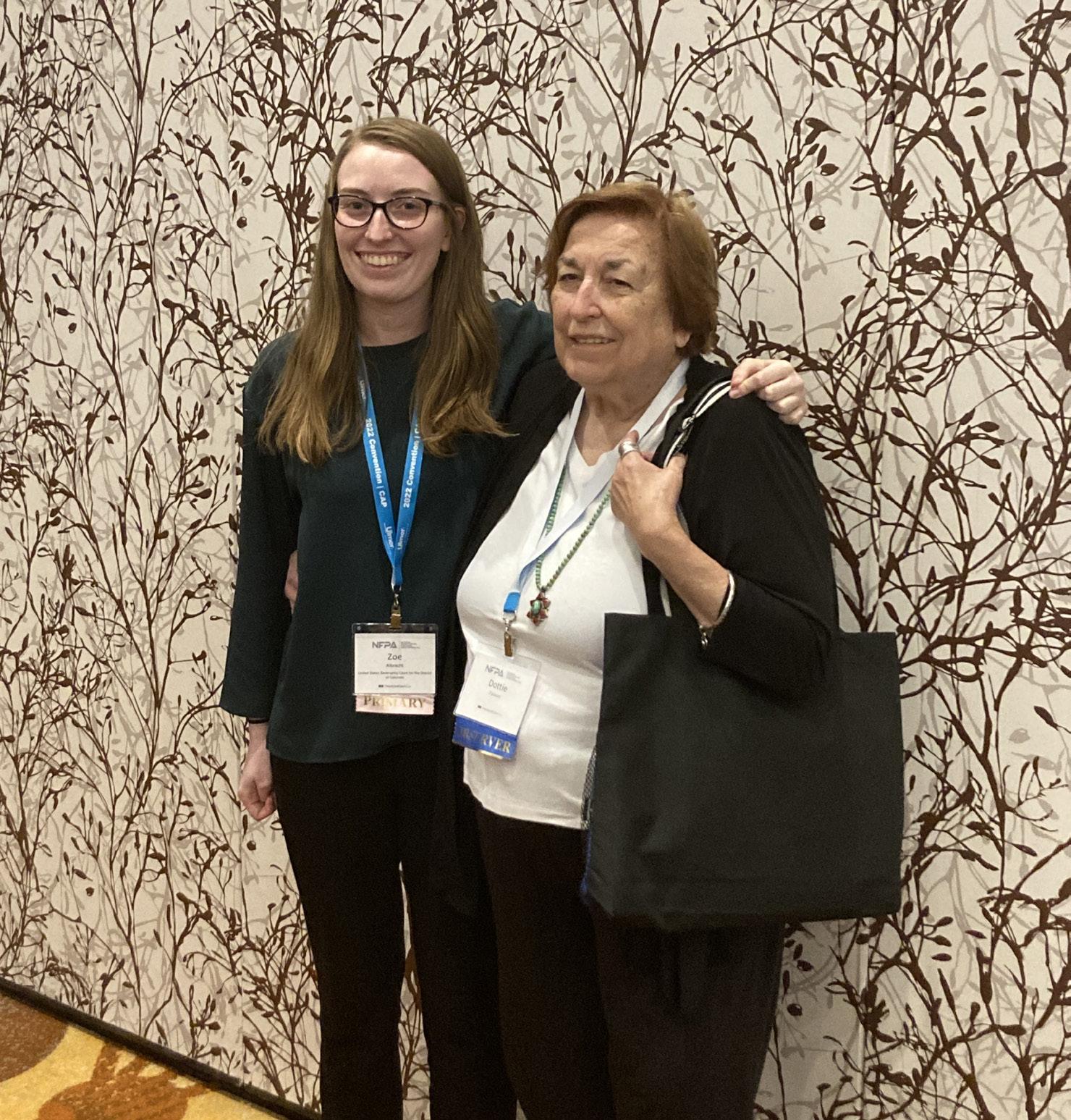
Since inheriting this position, Zoe and Dottie have spoken on the phone a few different times about their connection to this field and Zoe has gleaned a better idea of Dottie’s career and different roles she’s been in over the years. Dottie encouraged Zoe to go to the 2022 Annual Policy Meeting in Cleveland, and the plan was for Zoe to stay with Dottie while she was there.
Initially, the two were excited about the idea of Zoe going and then telling Dottie what happened at the end of the day. Zoe mentioned staying with her grandmother to her Region Director, Deana Stom, J.D., and Dottie’s history of working in the legal field. Deana suggested that Dottie attend the meeting as an Observer.
Dottie has served as a great inspiration for Zoe as both a grandmother and a professional. Dottie has always thoroughly pursued what interests her and worked hard in whatever role she has. She
truly is a self-made woman. Zoe feels that it’s an honor to be following in her footsteps and living what feels like another version of her life decades later.
Now you know how it came to be that Zoe Albrecht from Rocky Mountain Paralegal Association happened to bring her 85 year old grandmother, former paralegal and CAP member and 1985-86 NFPA Reporter coeditor to the NFPA 2022 Annual Meeting. Thank you for the opportunity to tell our story at the annual meeting and here.
I walked into the 2022 Annual Policy Meeting in Cleveland not quite knowing what to expect. I took my seat at my designated spot and waited for the voting to start.
Even with having attended the First Timer’s Meeting prior to the Annual Policy Meeting and having a general sense of how it would go, it was far more of a whirlwind than I expected it to be.
One thing that confused me, but which became clear as I recognized the pattern, was that we voted twice on every issue. The first vote was whether or not to bring the issue to the floor, and the second vote was on the issue itself. Thankfully, I had help in figuring this out as the members of my Region were answering any questions I had during the process via text. I was especially thankful for this because if not for them, I think I would have been raising my brightly-colored half-slips of paper and stopping the proceedings with my questions frequently. I think one of the half-slips was Point of Order, and I forget the other, but they were to ask two different categories of questions. I think, if I have it right, that one was to ask a clarifying question and the other was to take issue with the way something was presented via the rules.
Even though the process for voting was wellorganized, it felt hectic to be on the other end of, which was surprising to me because I felt well-prepared. I had taken the advice of the Board members at the First Timer’s
Meeting and read through the proposed Agenda Topics and Bylaw Amendments, and the changes they’d be making to the rules.
Before the 2022 Annual Policy Meeting, I had co-sponsored both Agenda Topics and Bylaw Amendments. I think this served me well because, in doing so, I came into the meeting and knew people outside of my Region. I also knew people from my Region as we have monthly meetings to checkin with one another. As a result, before going to the meeting, I felt like I knew the details of the issues and also had talked with other people at length, so I wasn’t a complete stranger to everyone there. I would recommend this approach of just fully embracing the Annual Policy Meeting well in advance of it to other first timers. I think it made for a much easier time for me.
Another thing I was told by my more experienced friends during the meeting was that you kind of have to go through a Policy Meeting to get the hang of it. I agree with this perspective, having now done it. The further into the meeting we got, the pattern of voting twice started making sense and I felt like I was following along more and more. I understood how it would work in theory, but in practice, it was much more exciting as there were developments I had not prepared for.
One of the things that took me by surprise was when there was an amendment to one of the Agenda Topics on the floor. Printed
packets were handed out for everyone to review before voting on the revision to the Agenda Topic. This was not something that I had expected or prepared for, which then made me wonder if the way I had prepared was insufficient. However, I think there’s no way I could have predicted this happening and that the best approach to Policy Meeting is just to try to follow along with the action and ask questions as they come up if you’re confused.
Another exciting thing that happened is that I followed a member of my Region to the mic with the idea in mind that I would second the motion they were about to bring forward. Instead, because of the rules, I ended up having to speak first. This resulted in my region member passing the sheet of paper to me. I read off of the paper, raising the motion I’d never seen before, to everyone in the room.
I like to try to be as prepared as I possibly can as a general rule, but what I learned in my time as a first timer at convention is that you can’t plan everything. With some things, you just need to go with the flow.
The NFPA annual convention was held in Cleveland, Ohio September 15-18, 2022. It was so exciting to attend the annual convention and see all that was offered for In-House Paralegals. This year’s convention was even more amazing for all In-House Paralegals. It was also nice to see the new NFPA trademark logo this year.
The NFPA In-House Paralegal Committee really stepped up their game and posted an article in the National Paralegal Reporter, had In-House vendors at the convention, CLE Tracks really geared to In-House Paralegals, and a wonderful Workshop discussing issues we face as an In-House Paralegal.
This year’s CLE track included Corporate Compliance, Non-Profit entities, Business Basics, and Mergers & Acquisitions. Then to end the day on Thursday after all CLEs the NFPA In-House Paralegals gathered for an In-House Paralegal workshop. The discussion gave us so many tools to add to our Paralegal tool belts. Thank you everyone for sharing all their thoughts and best practices. It’s so important for us to connect and share our thoughts and resources because we are all in this together as In-House Paralegals.
Friday morning was the NFPA In-House Paralegal breakfast. This was the BEST part of the NFPA In-House Committee, having breakfast with all the In-House Paralegals during the convention. We must give a shout-out to Chris Hansen for this fantastic suggestion for breakfast and this was the 2nd annual breakfast held at
the convention. I also need to give a huge shout-out to CobbleStone Software; which is a contract management system provider for sponsoring the NFPA In-House Committee breakfast. Interested in learning more about Cobblestone Software contact Steven Steinberg at 866-330-0056 and visit their website at CobbleStoneSoftware.com
I think this year’s convention was amazing because we not only heard from Justice Michael P. Donnelly during lunch but were able to rock with his band during Friday’s night social event. Connecting with all the NFPA In-House Paralegals was very memorable. Cleveland literally rocks!
It was so nice to meet so many Paralegals who face the same issues as we all have in my day-to-day being an In-House Paralegal. It was so nice to connect with everyone!
The NFPA In-House Paralegal Committee did an amazing job in Cleveland and is planning to continue webinars during the year, and they will be publishing articles in The National Paralegal Reporter. The NFPA In-House Paralegal Committee will have more In-House Paralegal vendors, CLE Tracks related to In-House Paralegals, continue Workshops related to In-House Paralegals, and will have an In-House Paralegal breakfast at the next Annual NFPA Conference. The next NFPA conference will be held in Arlington, VA October 5-8, 2023. Mark your calendars now! Looking forward to seeing all the In-House Paralegals in Arlington, VA.
Renee De La Cruz, ILAP, MJ; Senior Corpo rate Paralegal; Member of Illinois Paralegal Association (IPA); Member of New Orleans Paralegal Association (NOPA); Member of NFPA - Region II, affiliated with NFPA InHouse Paralegal Committee
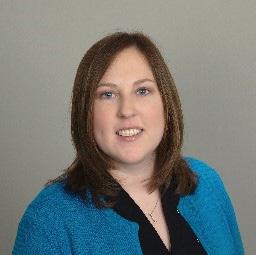

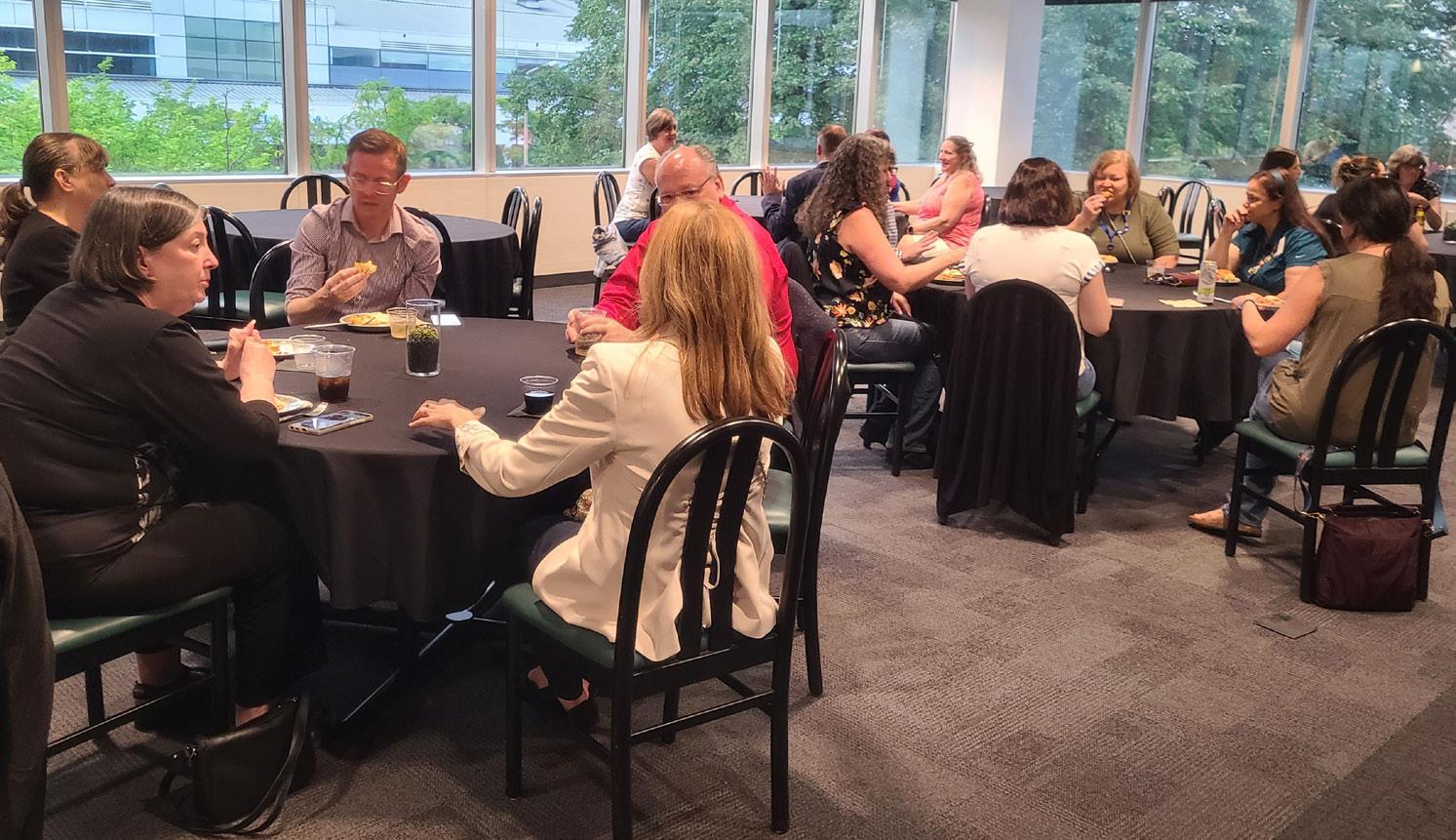
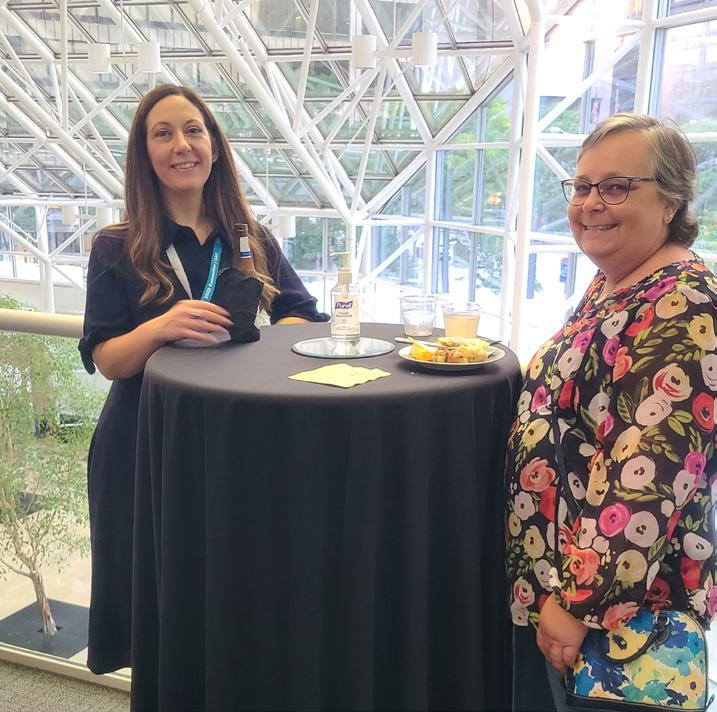
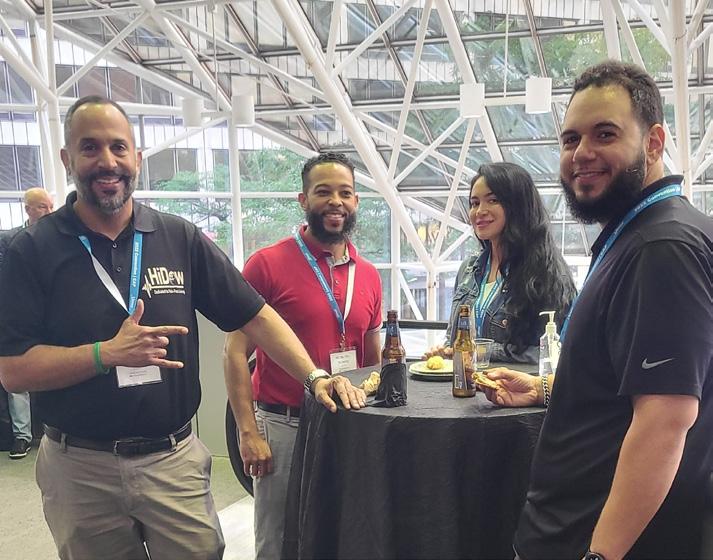
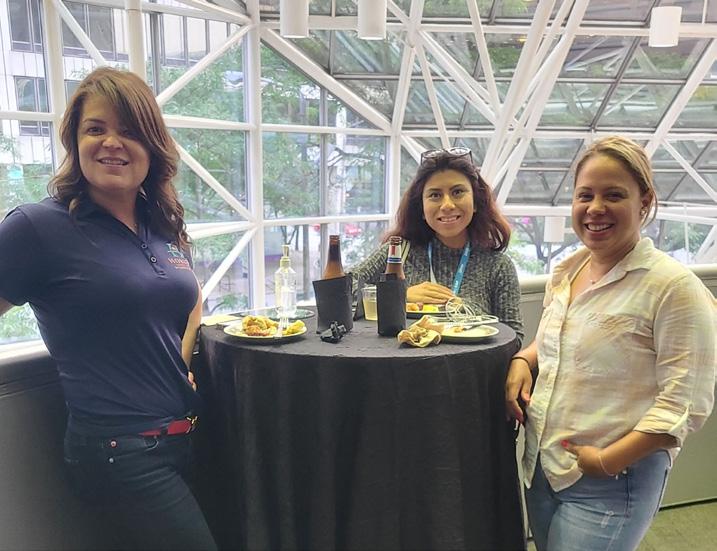
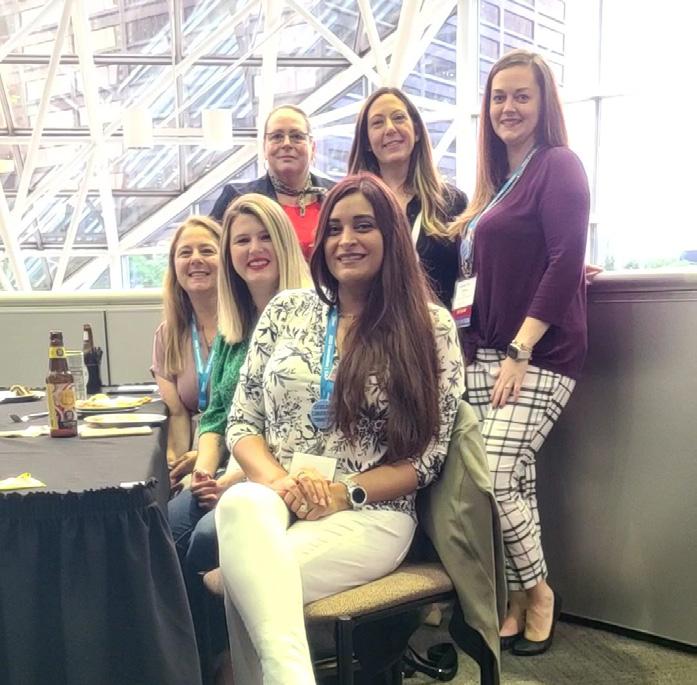
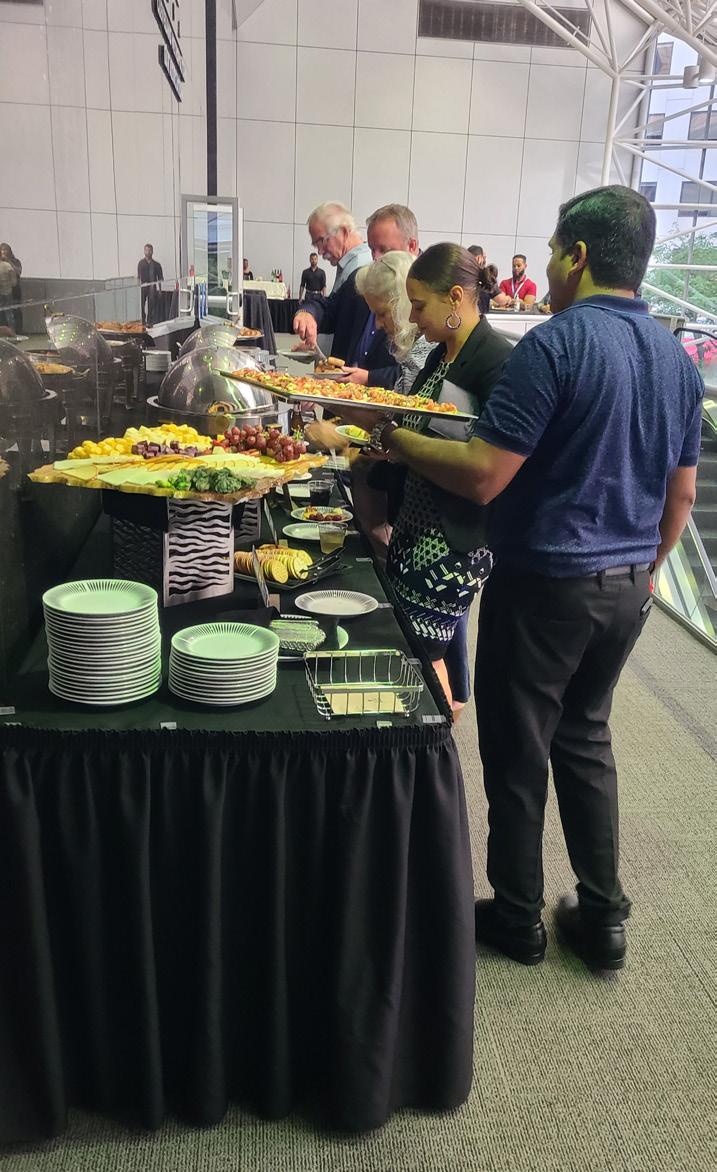
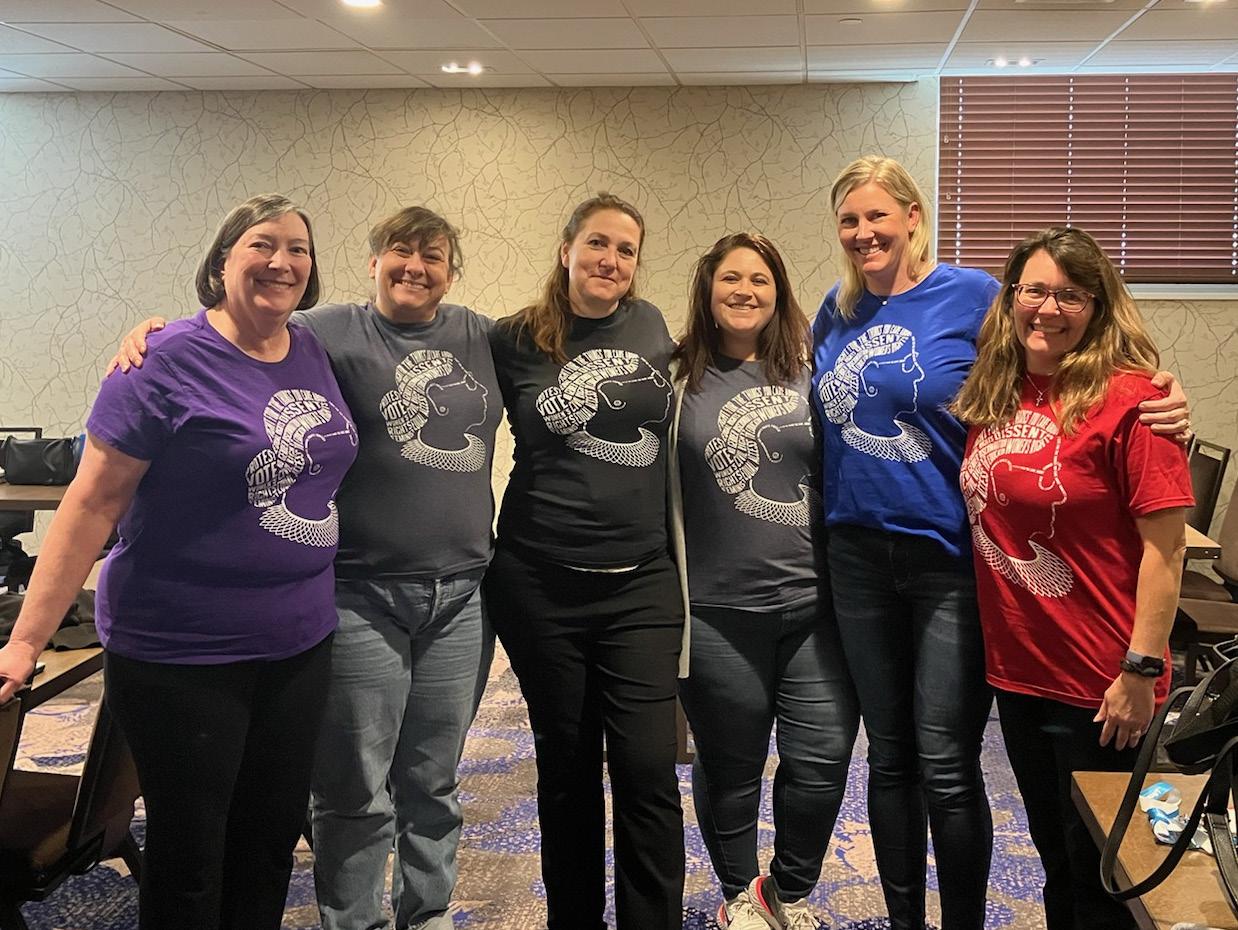
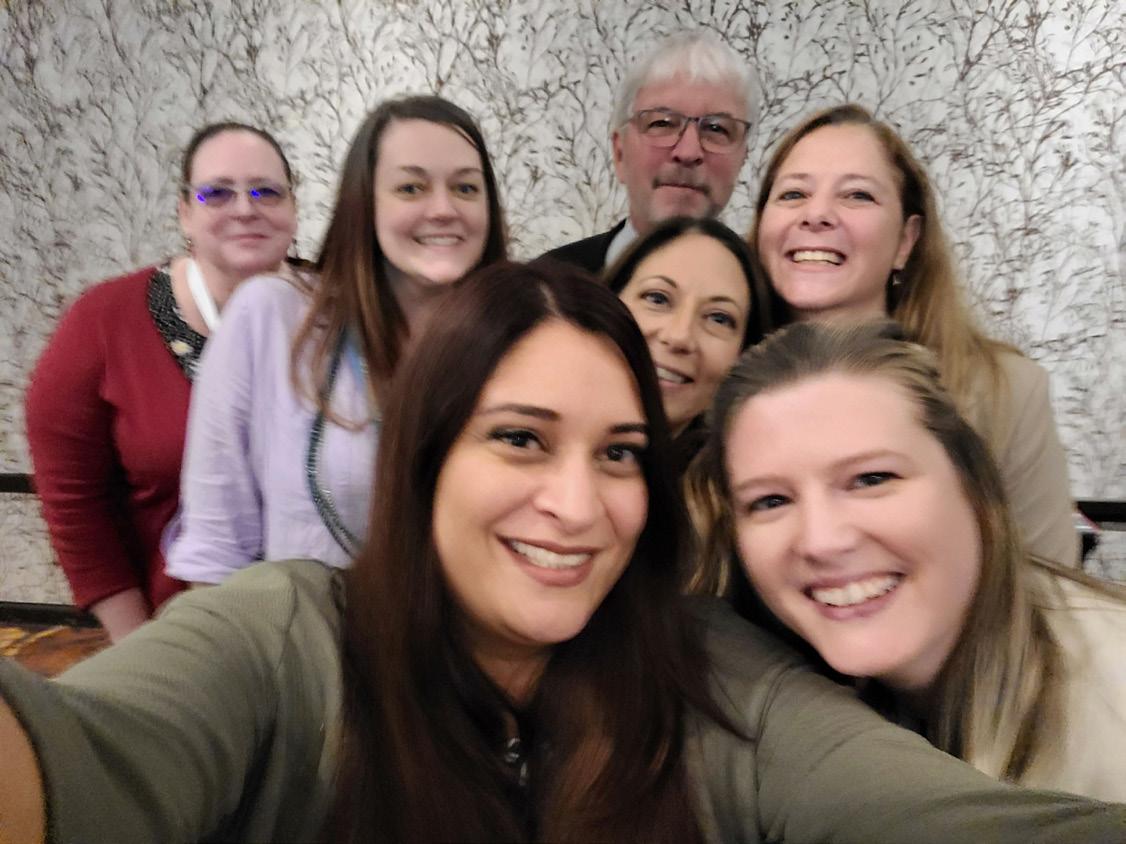
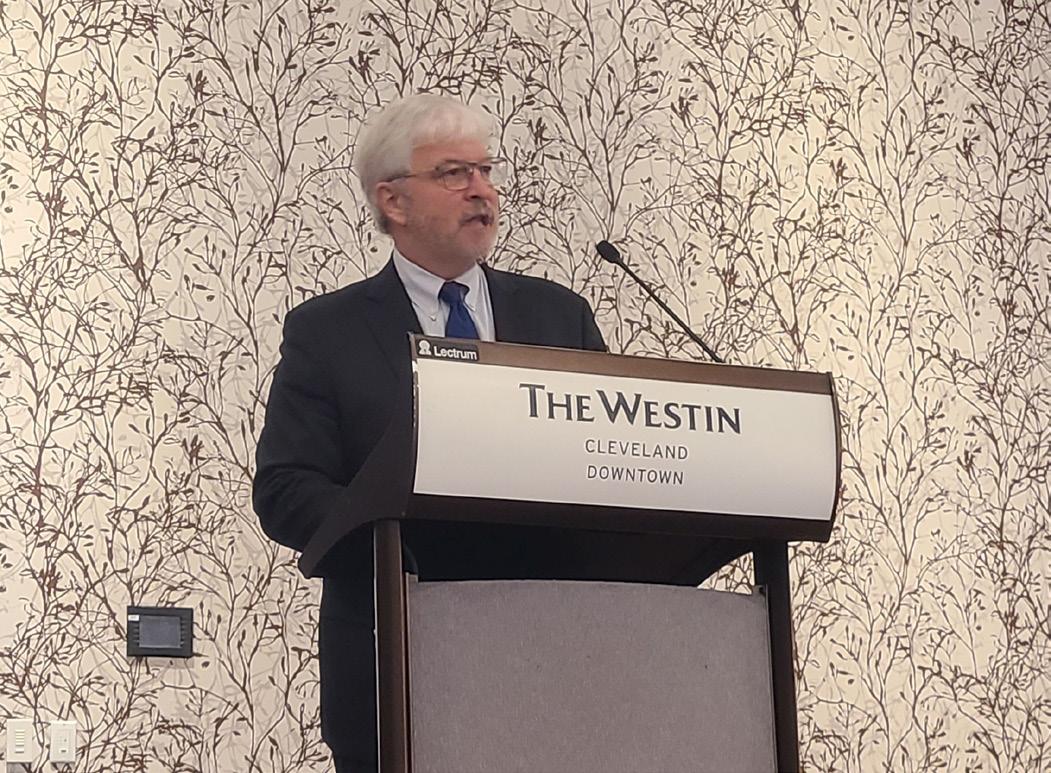
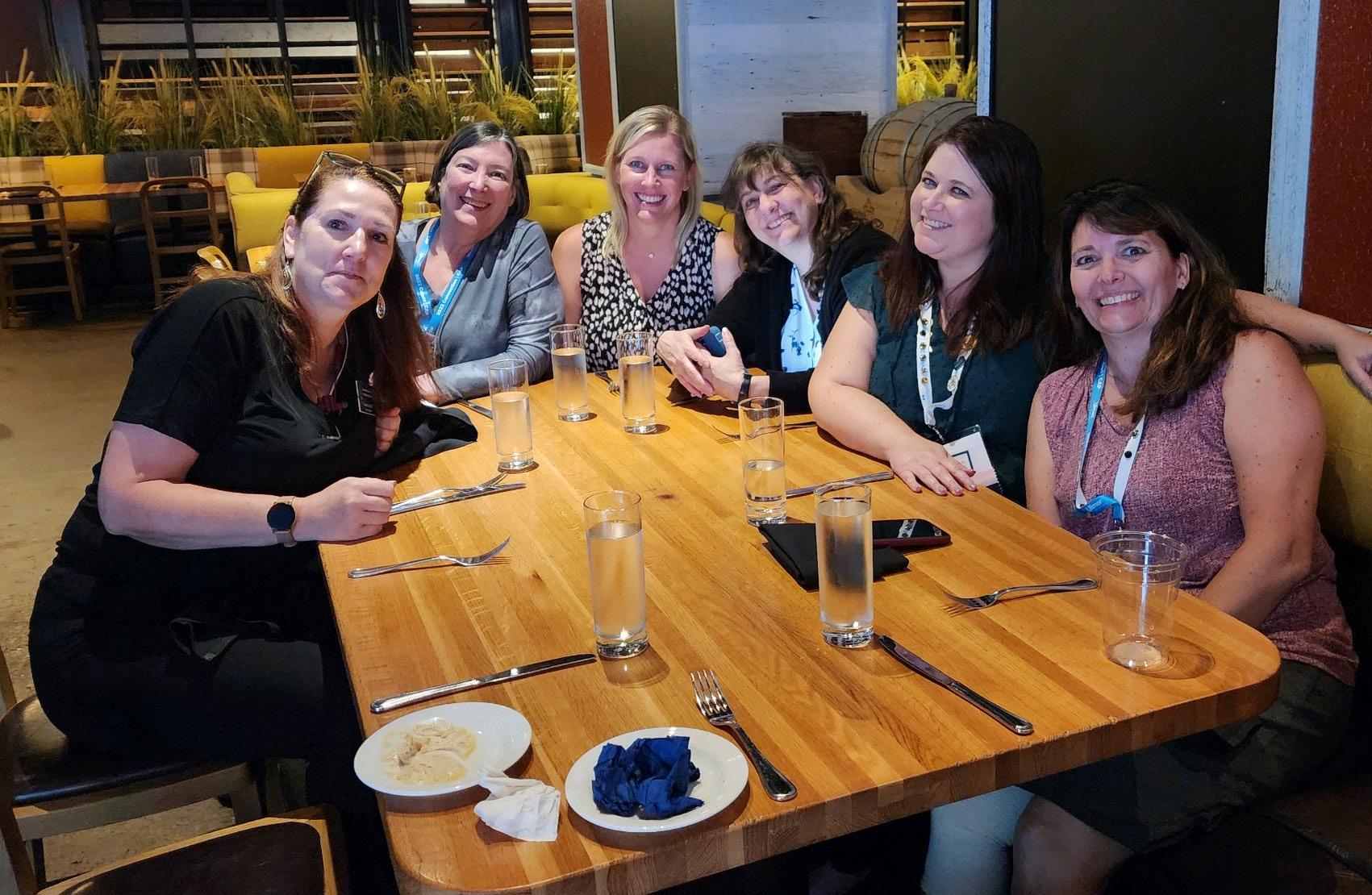
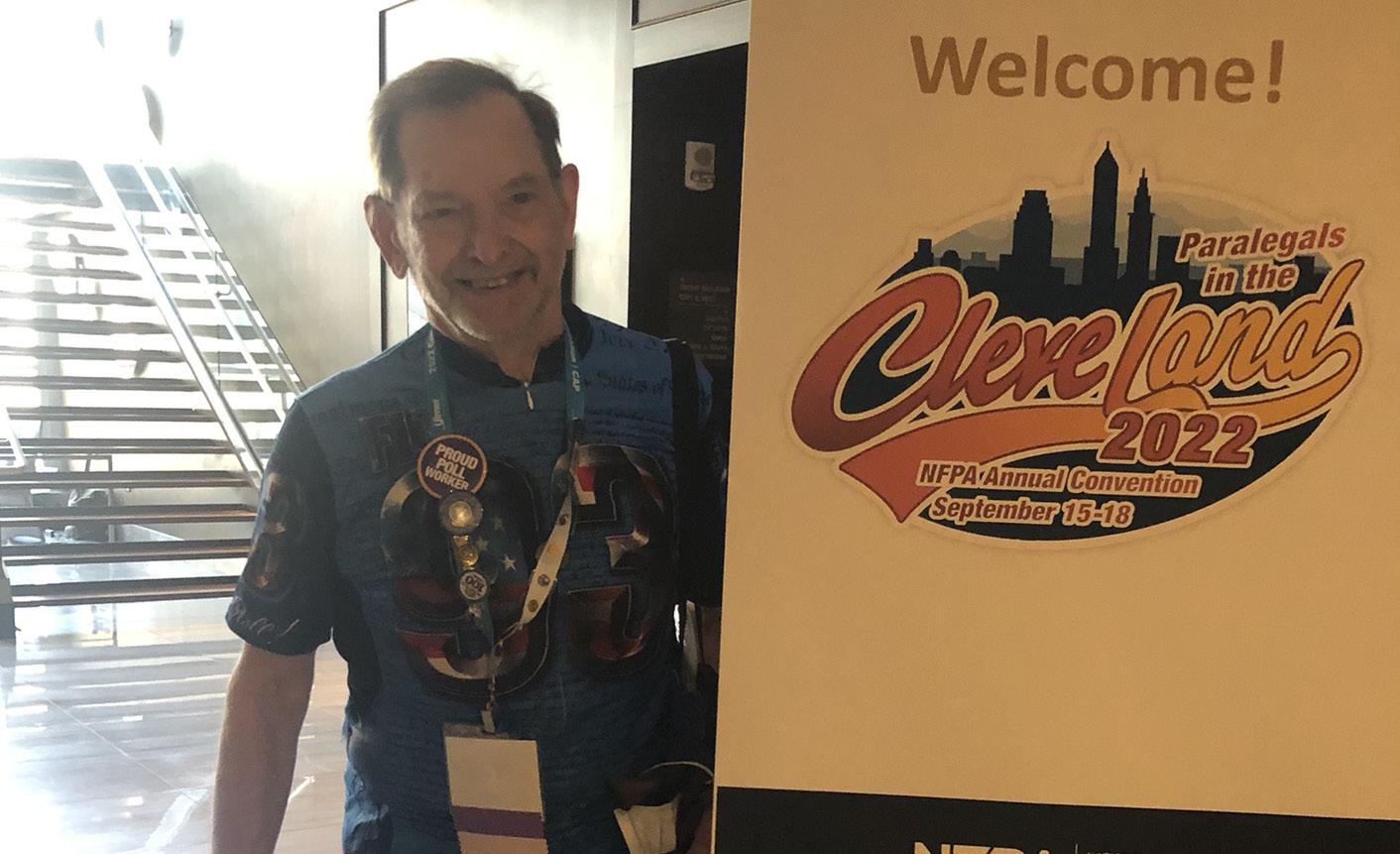
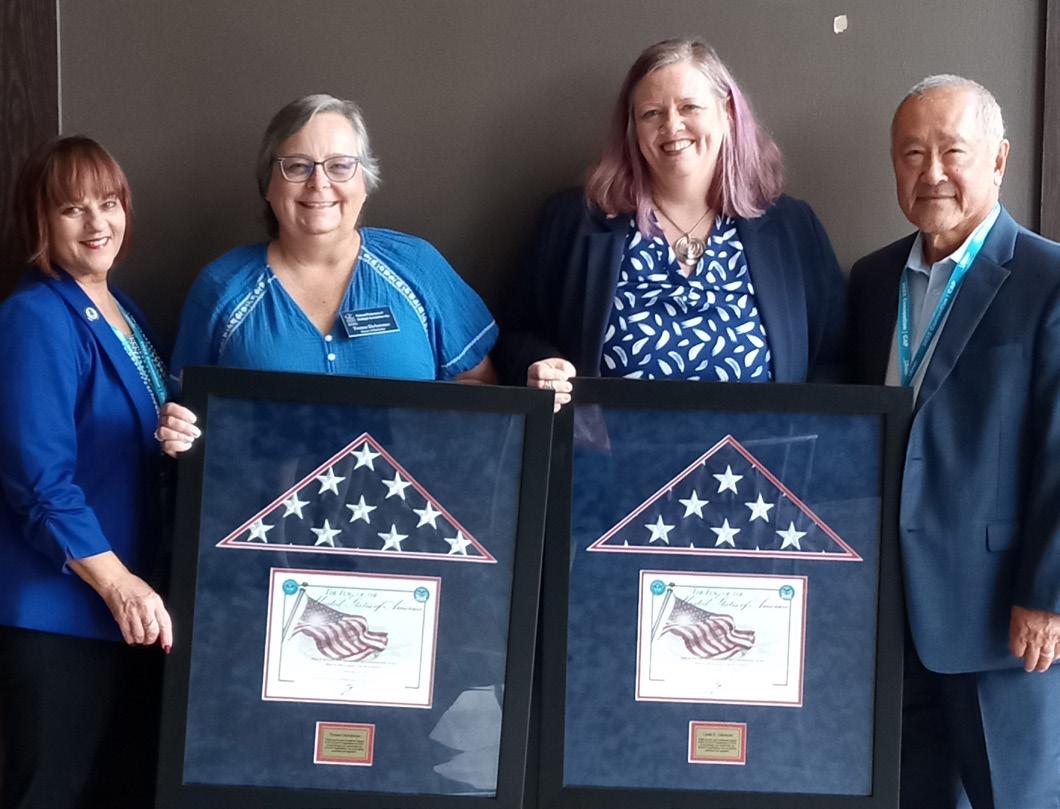
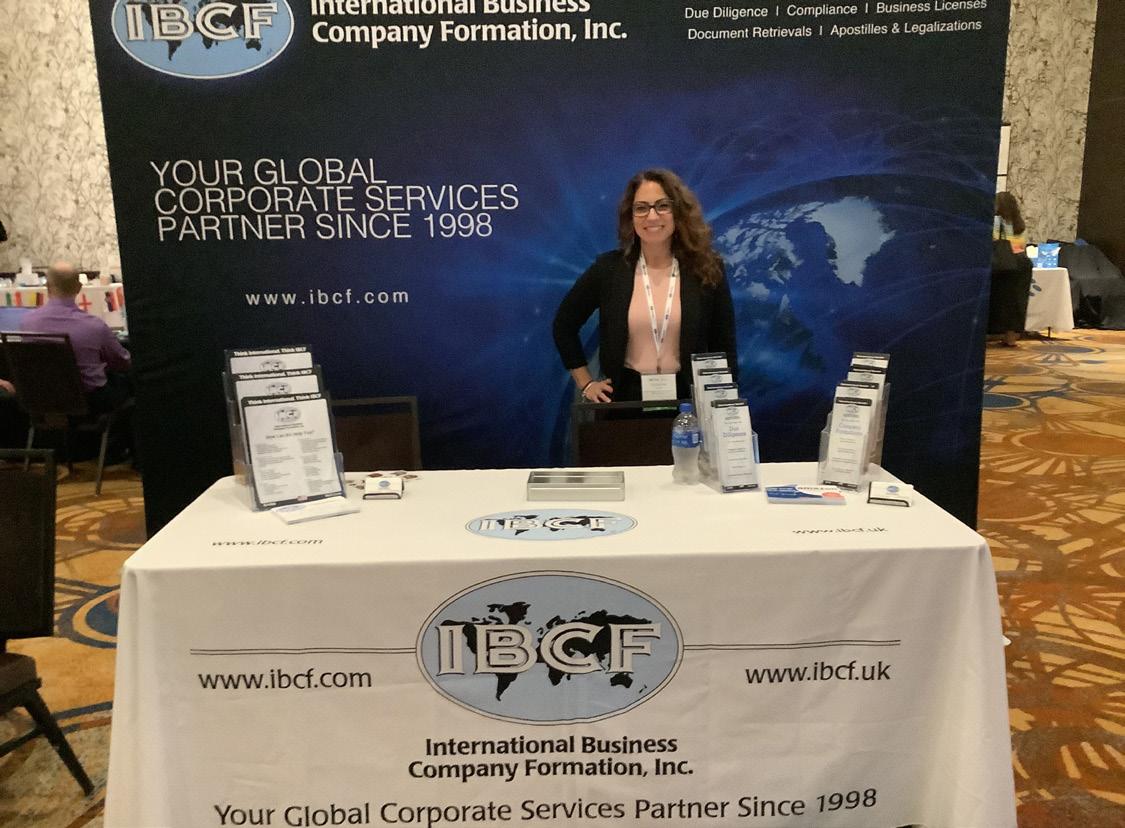
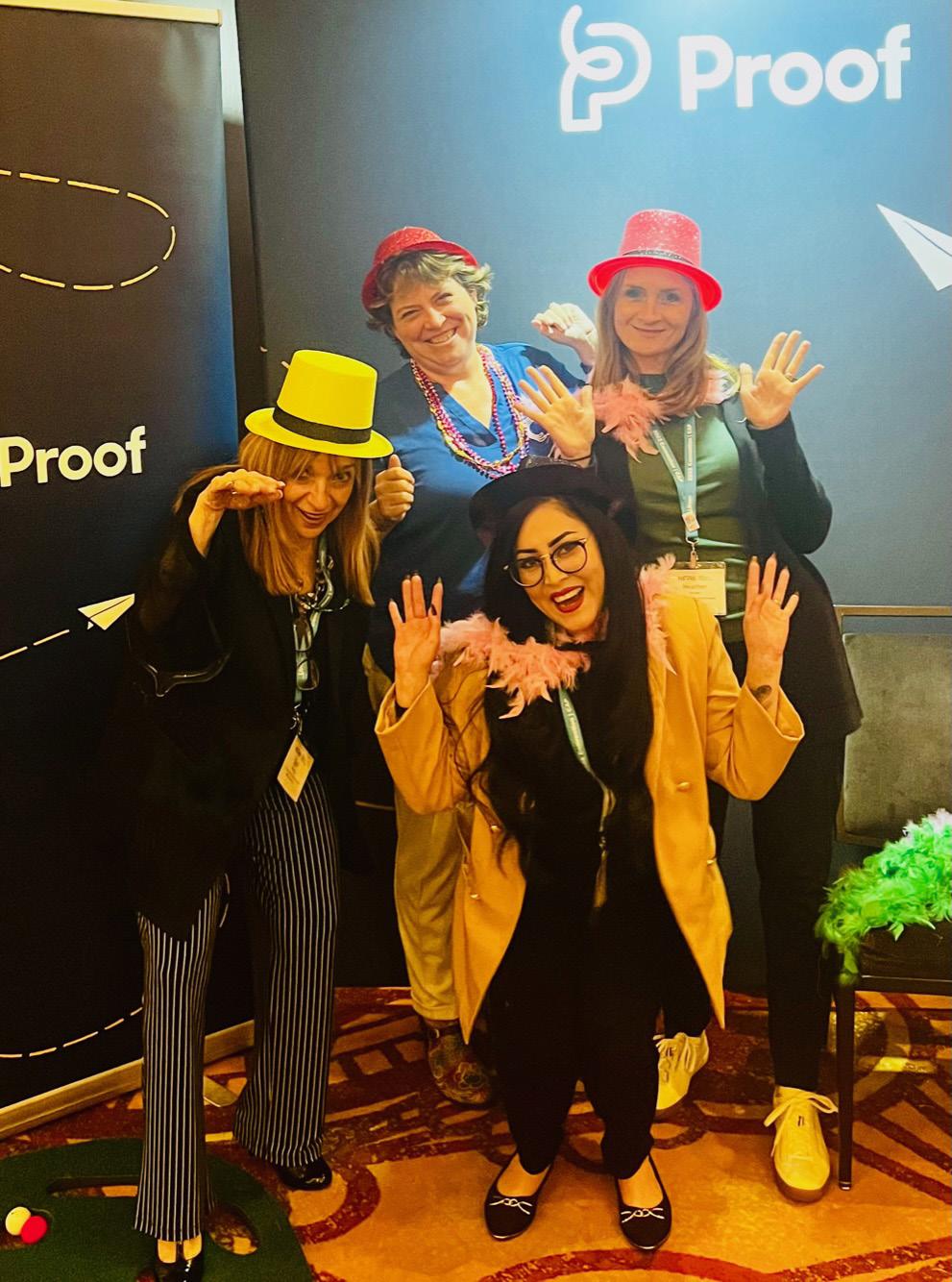
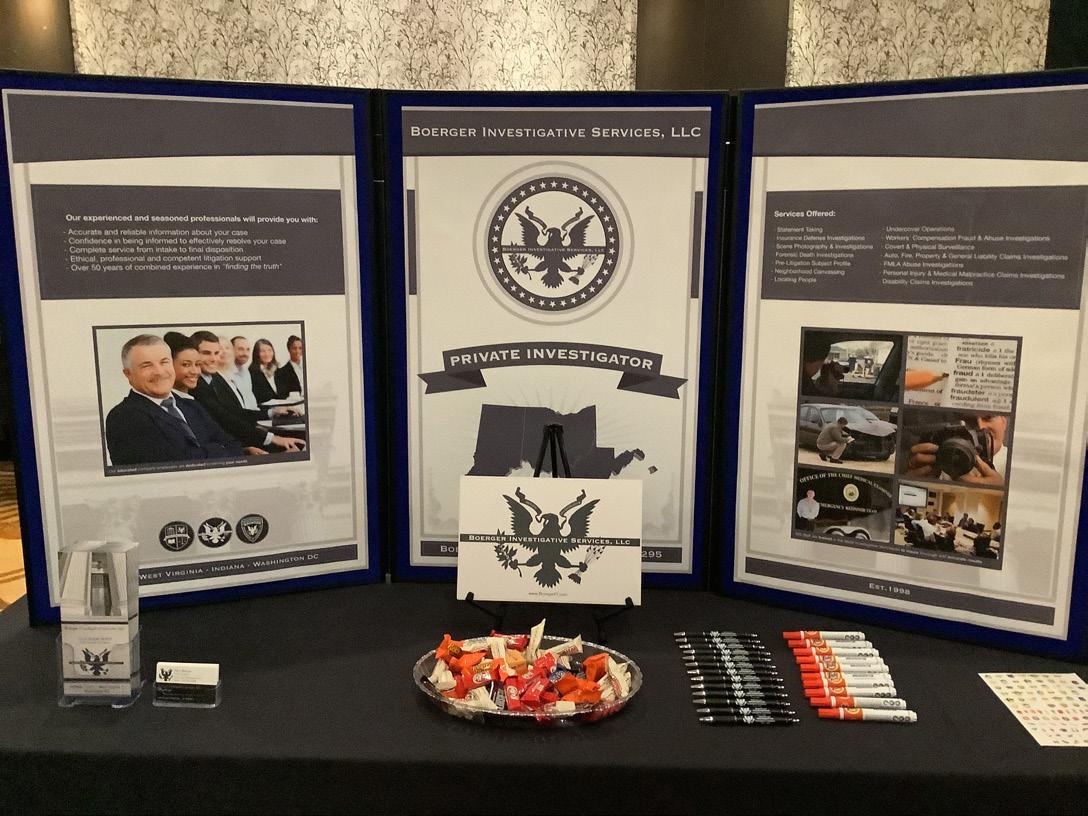
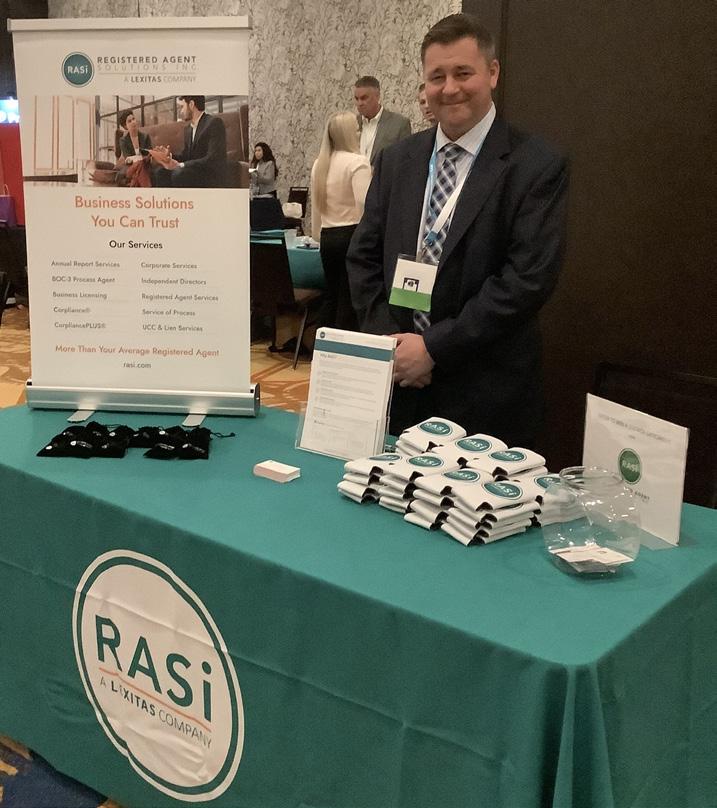
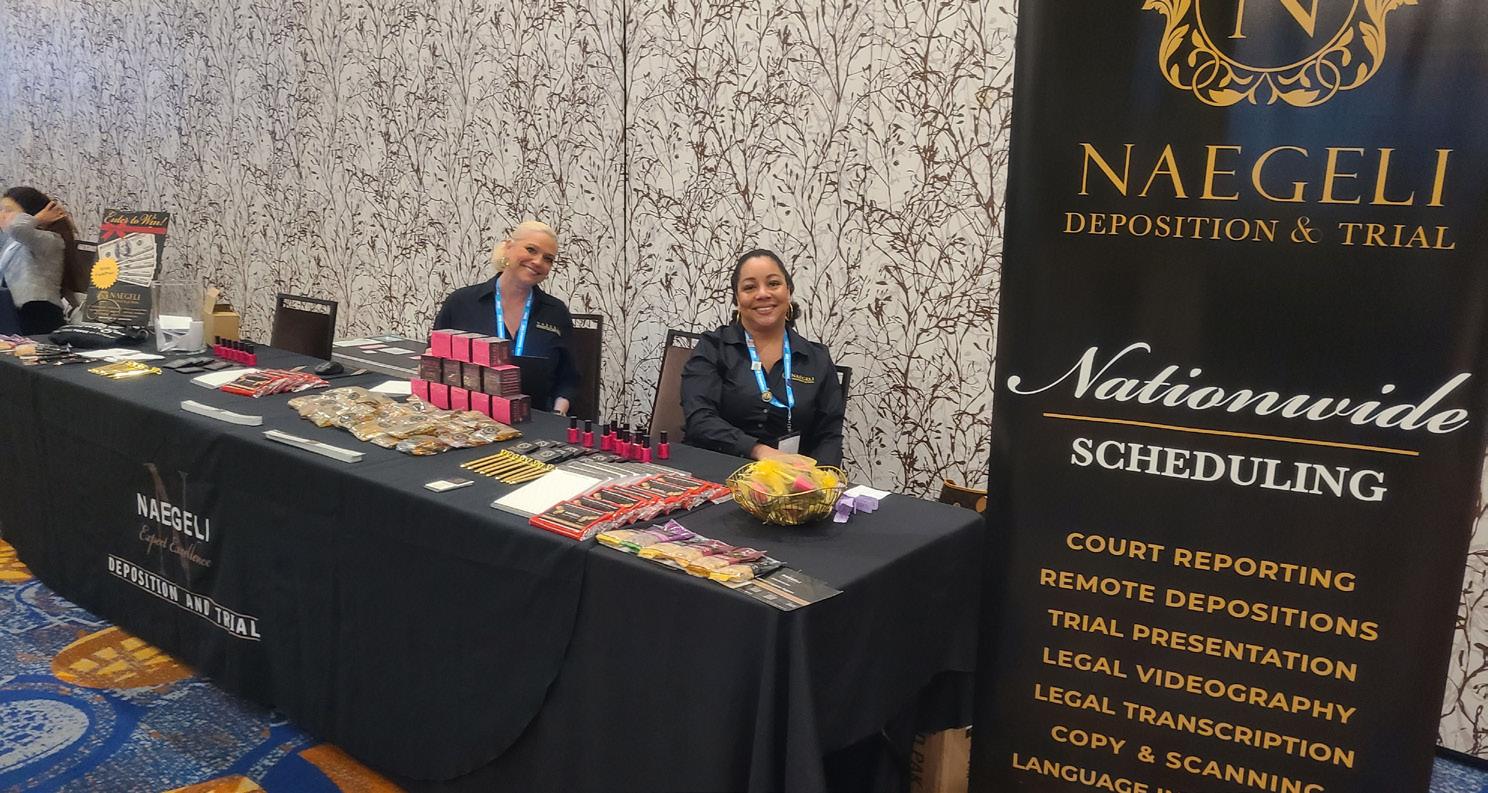
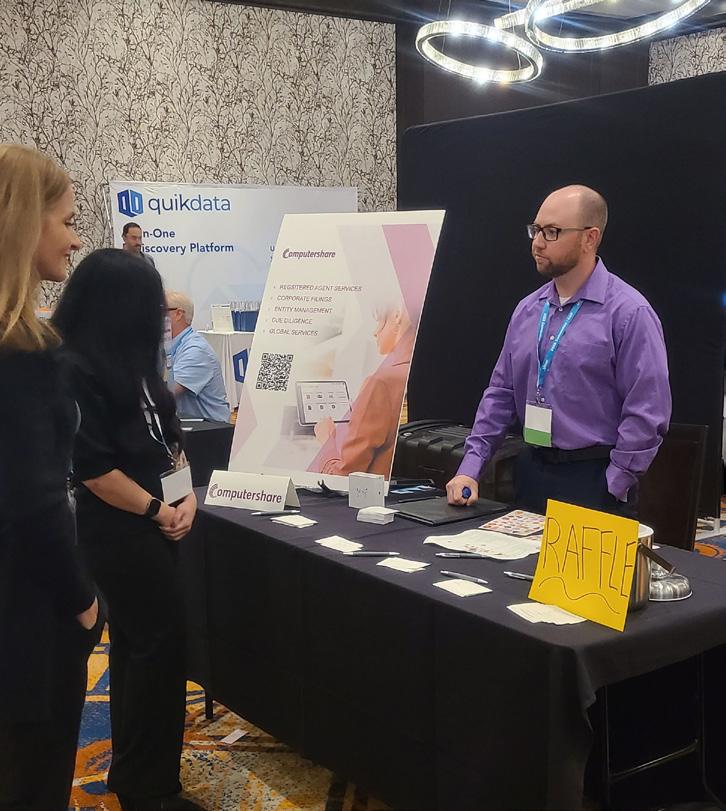
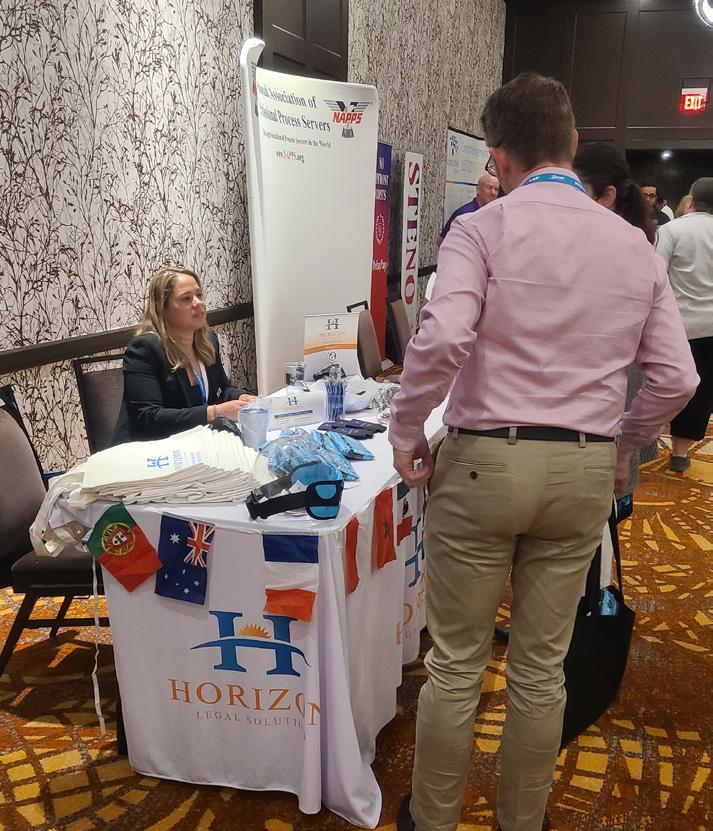
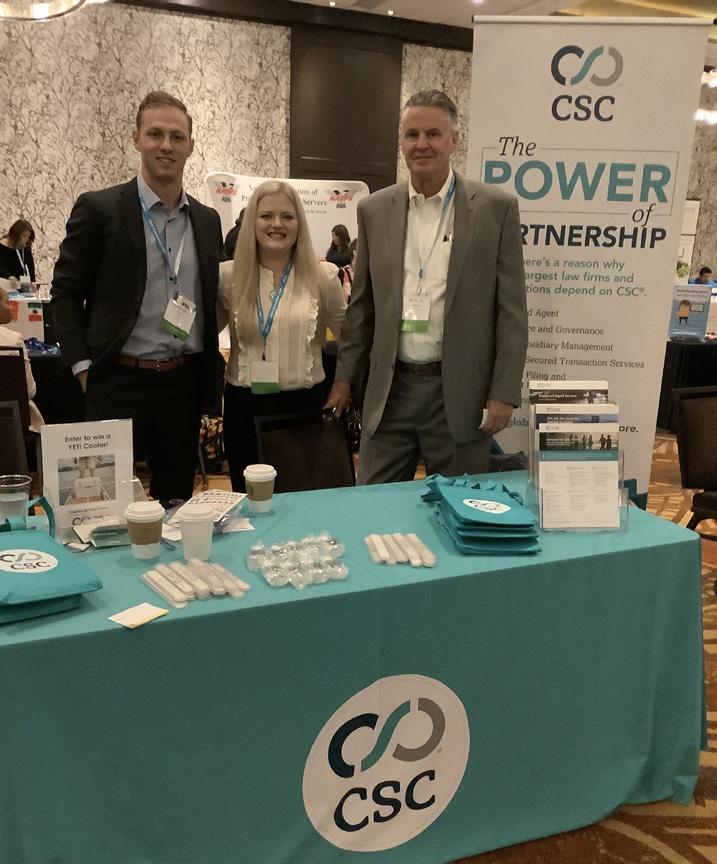
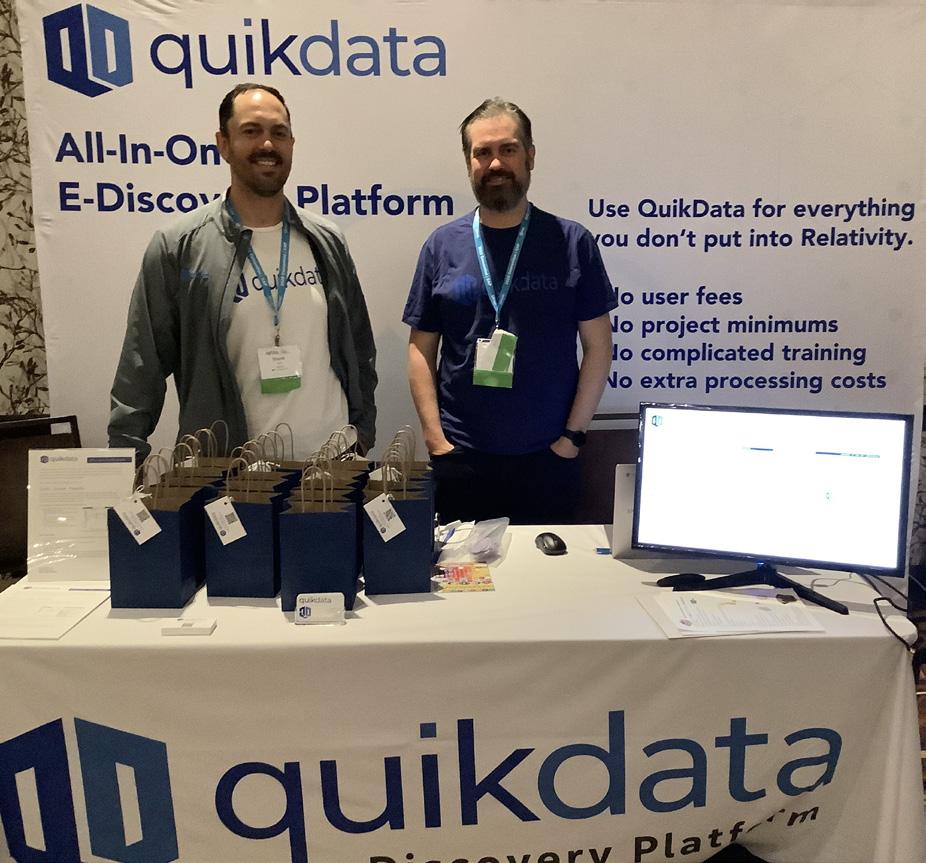

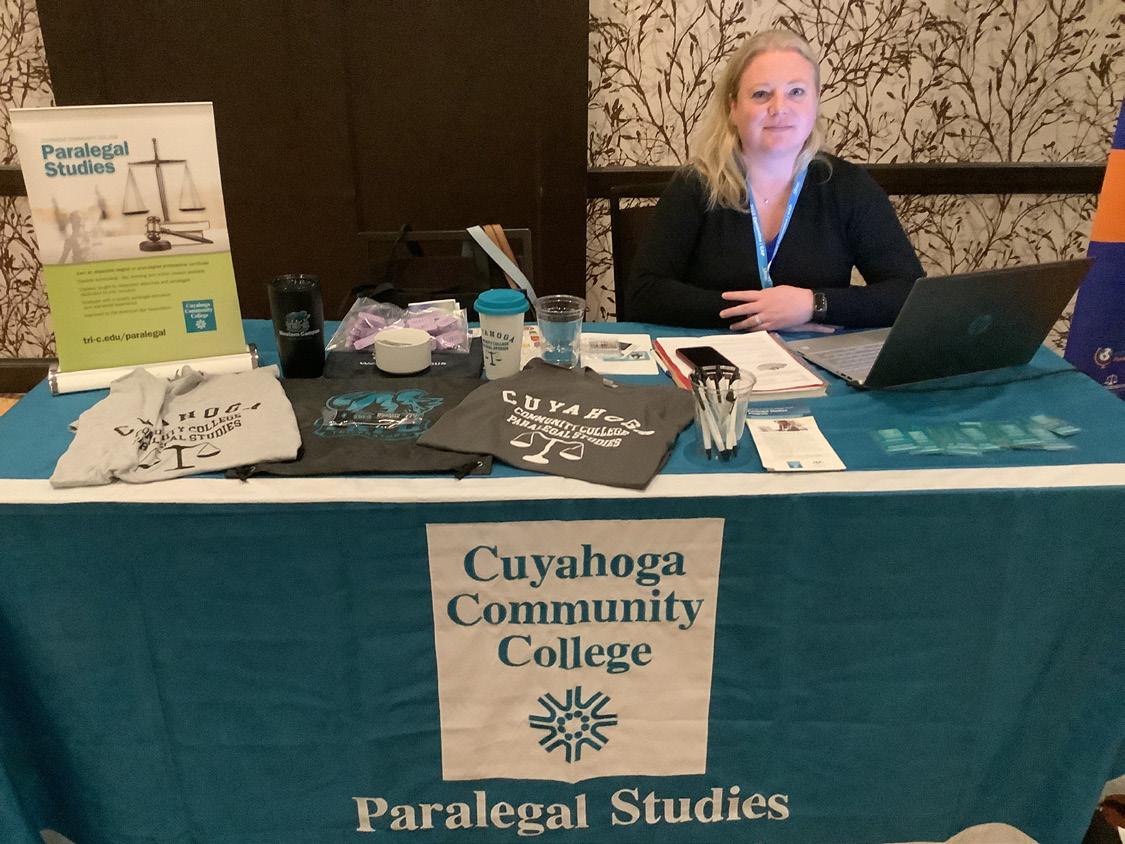
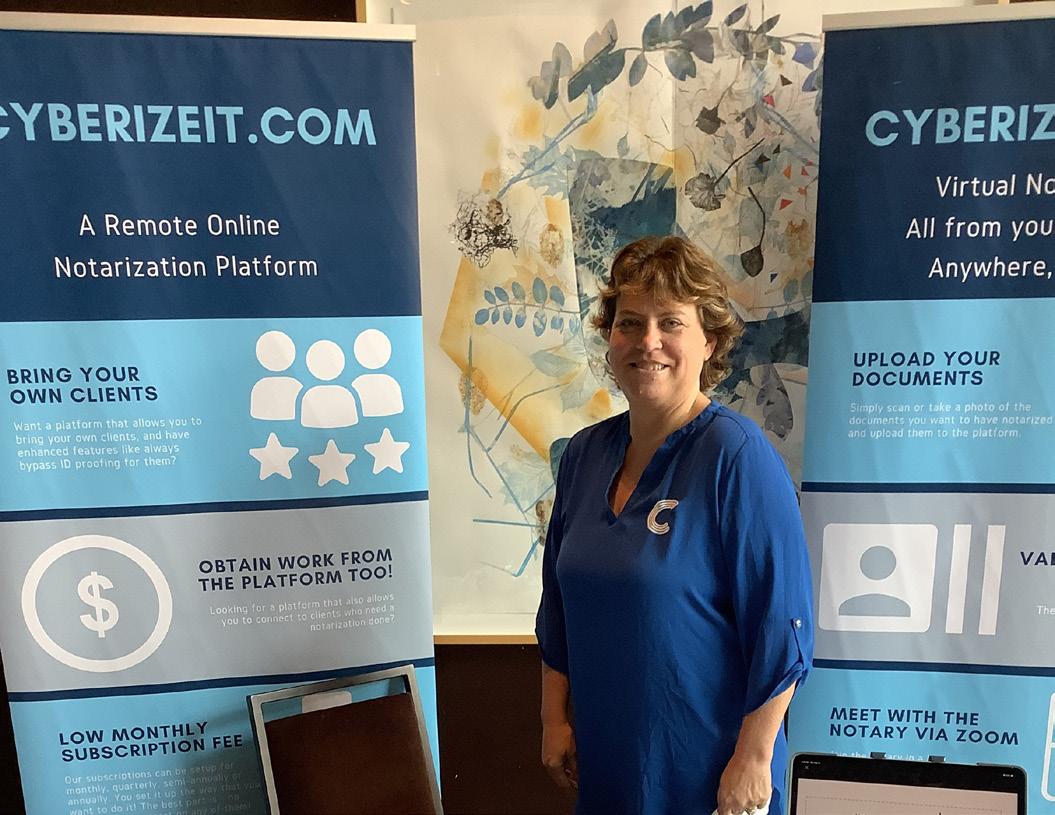
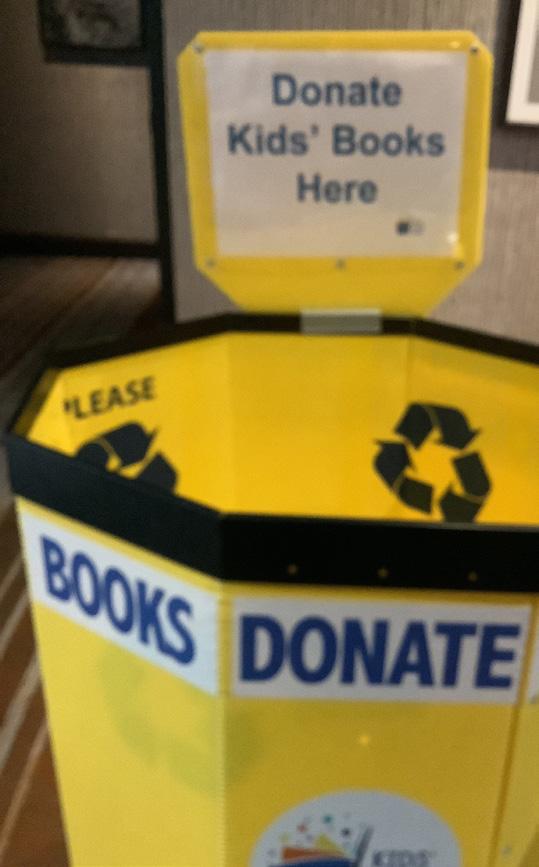

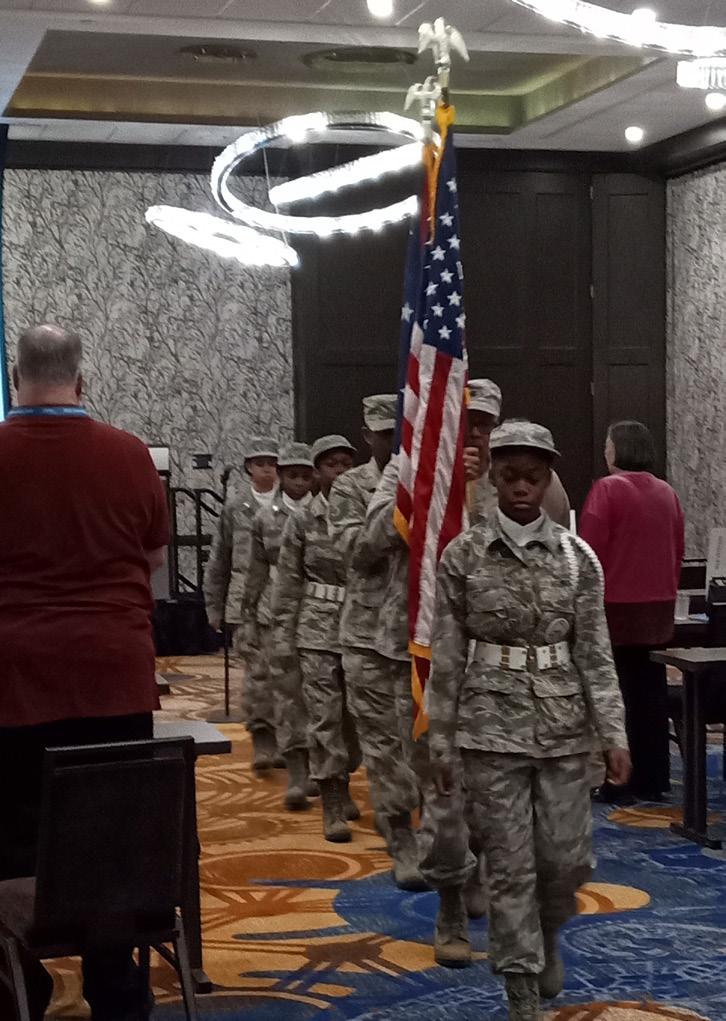

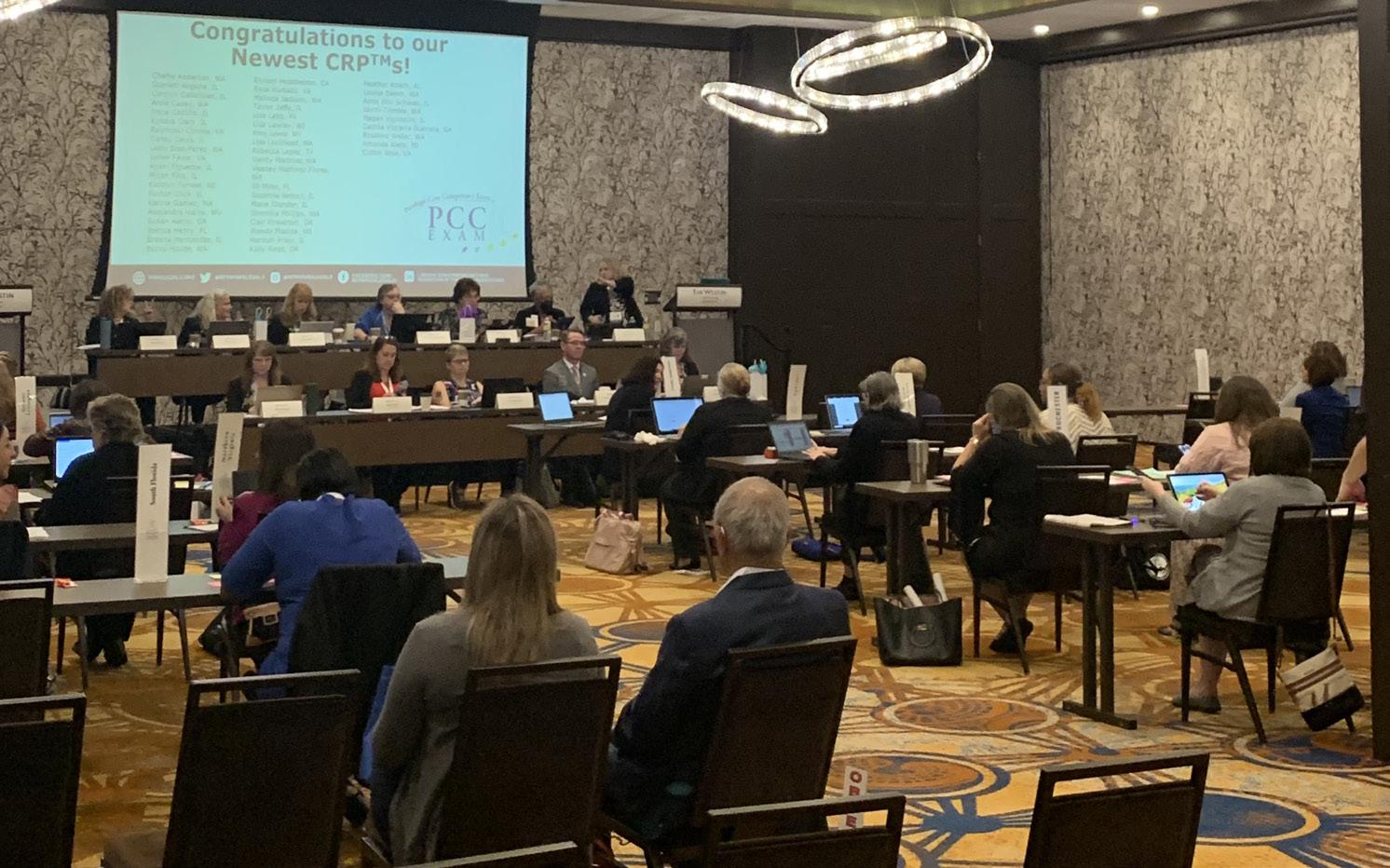
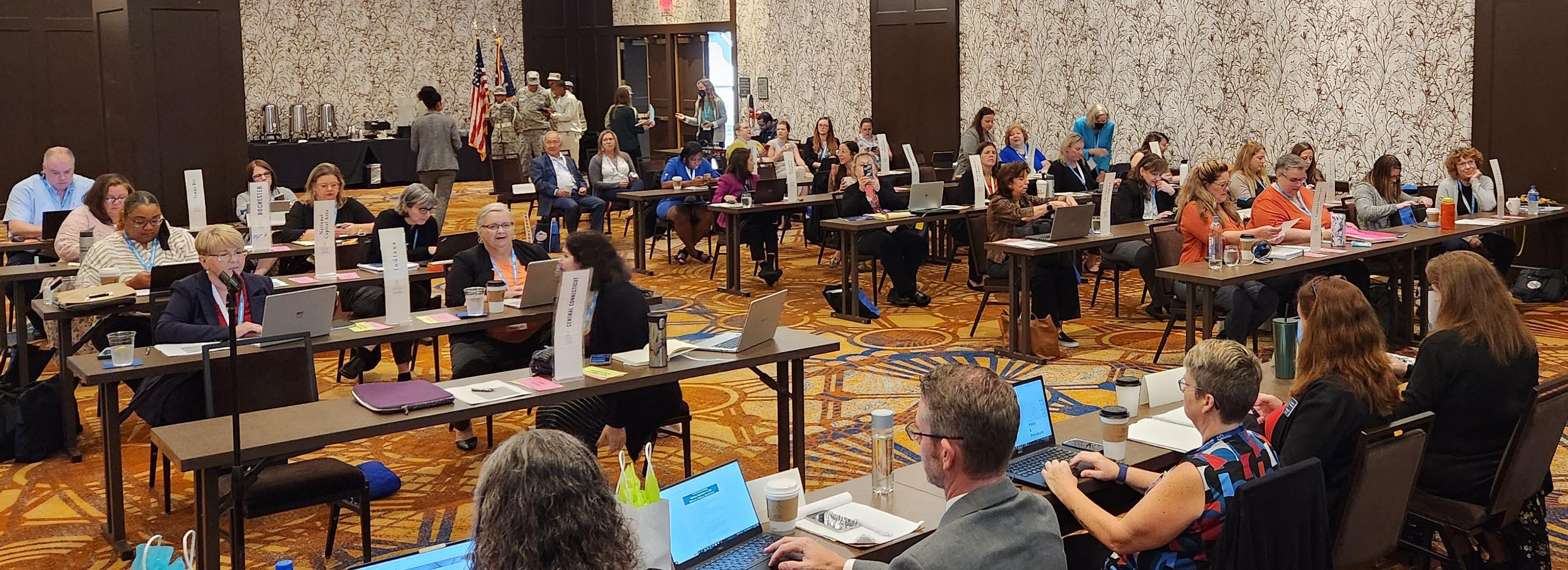
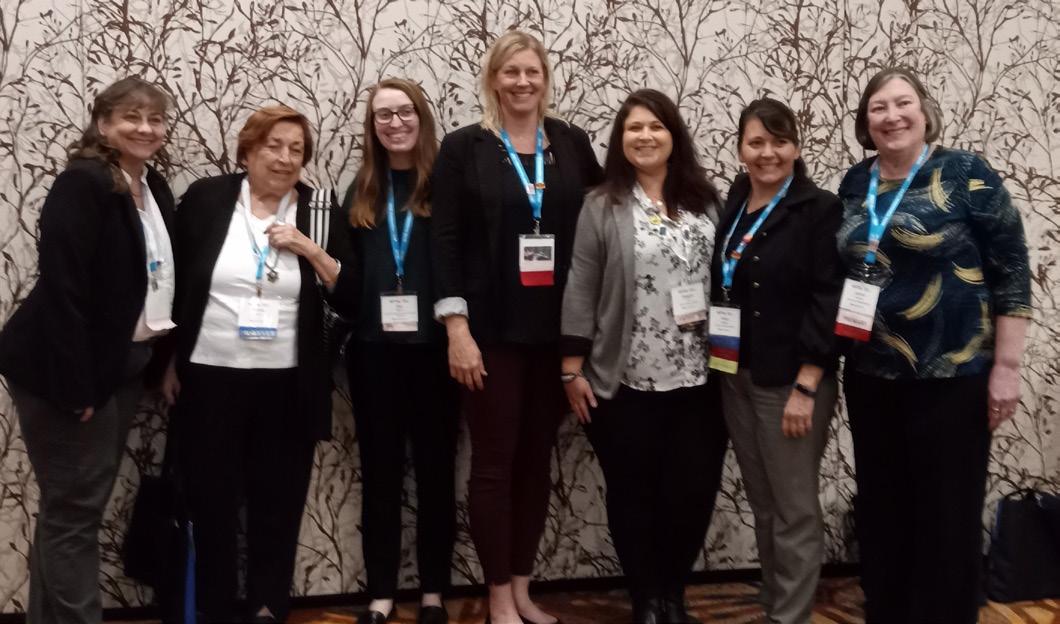
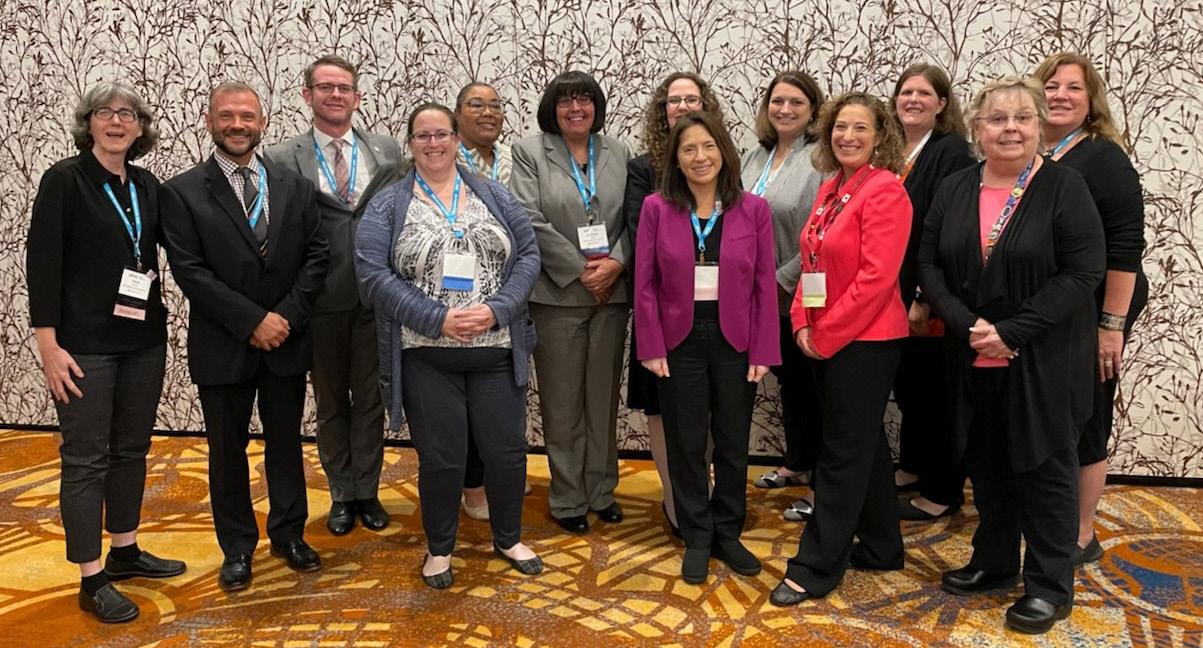
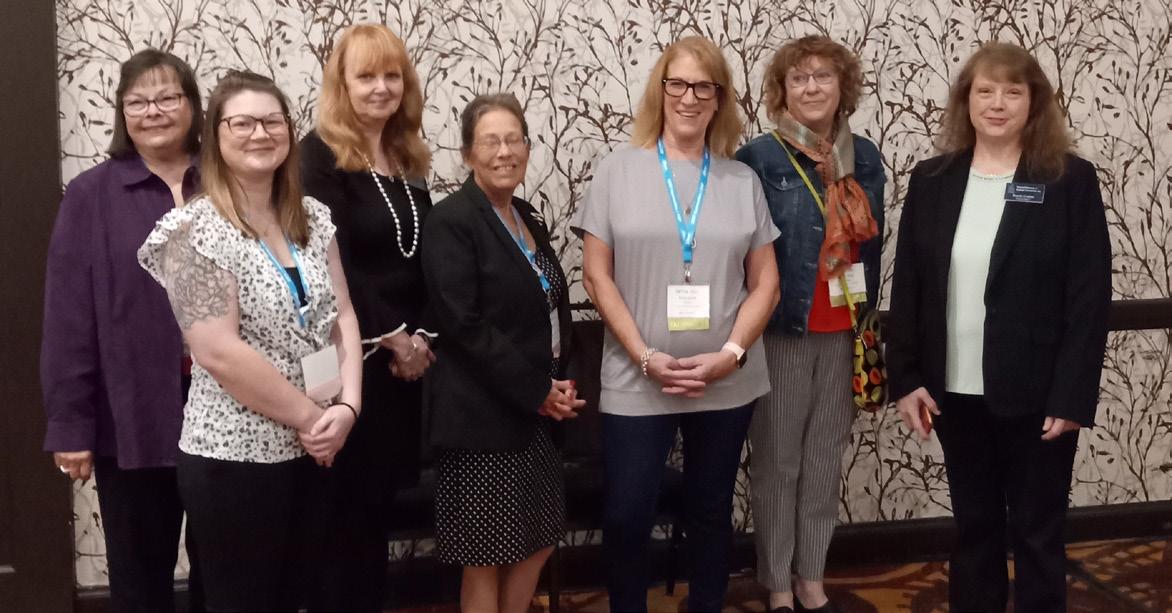
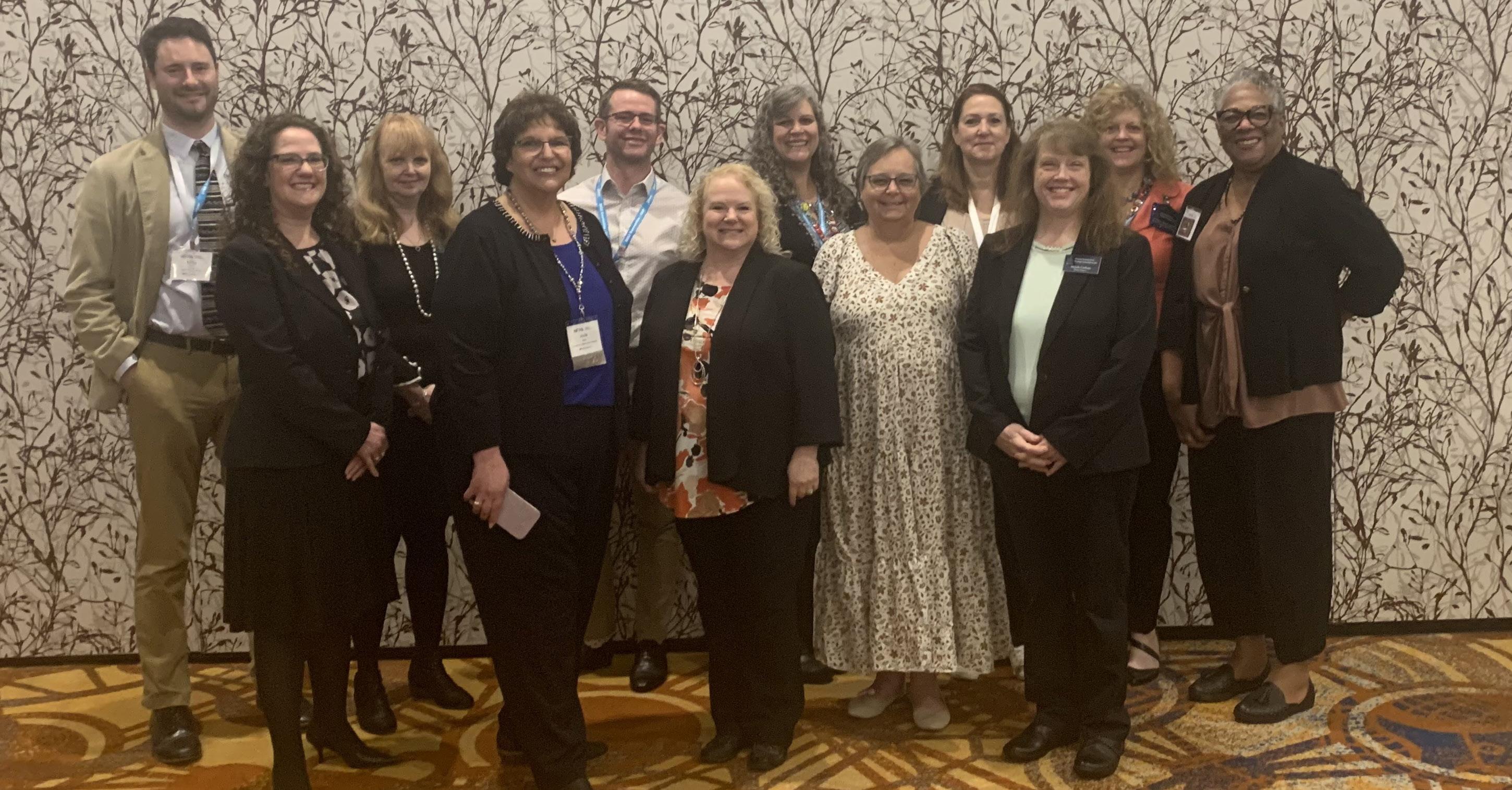
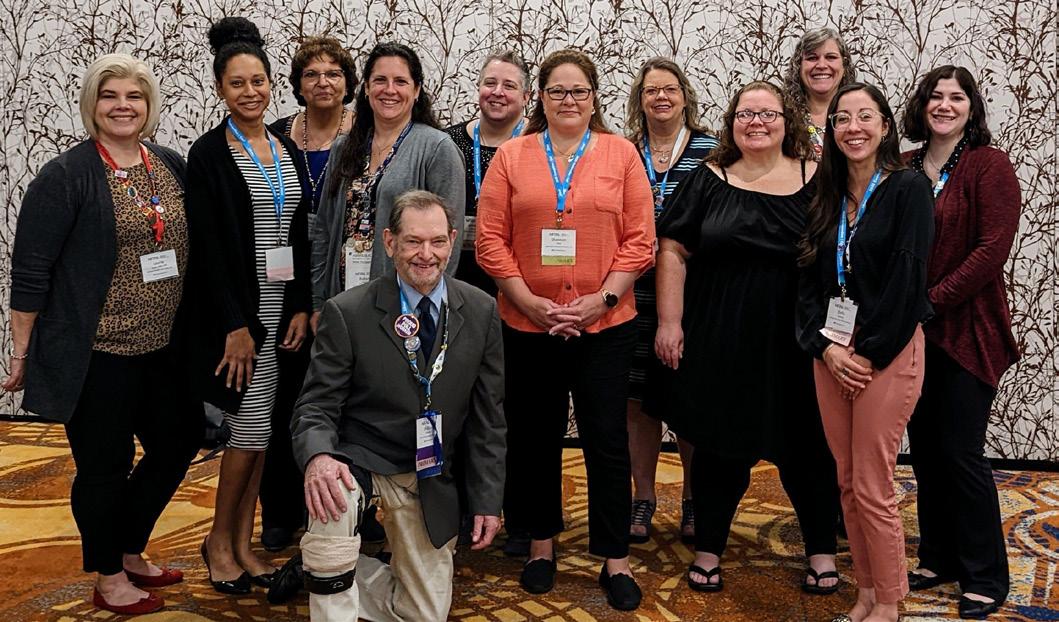
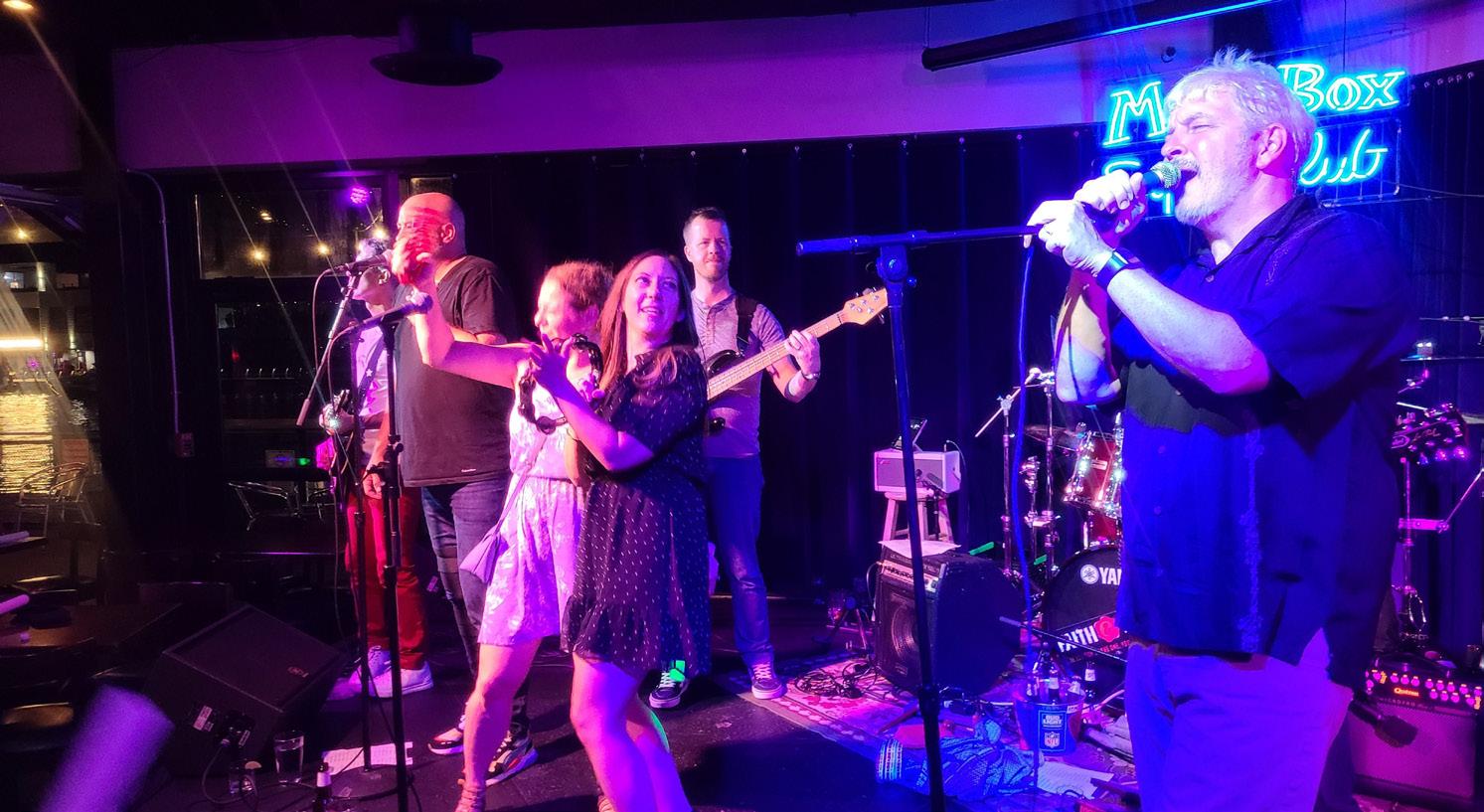
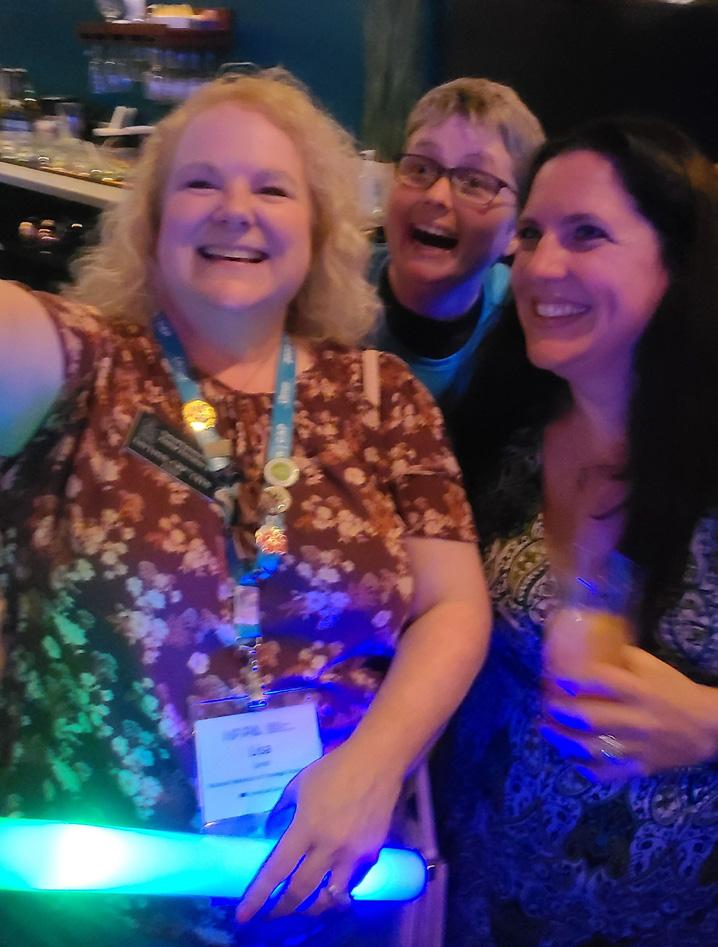
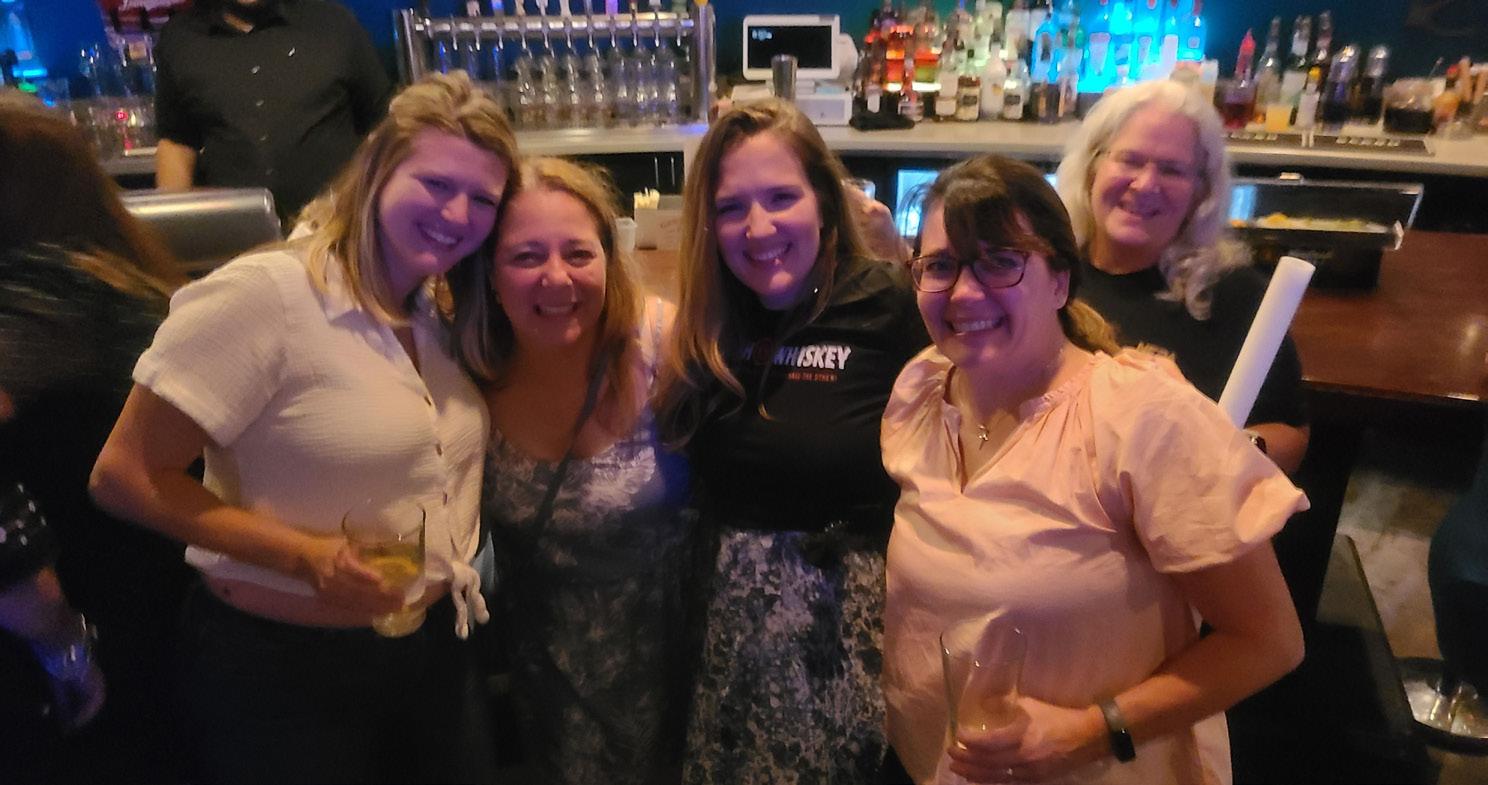
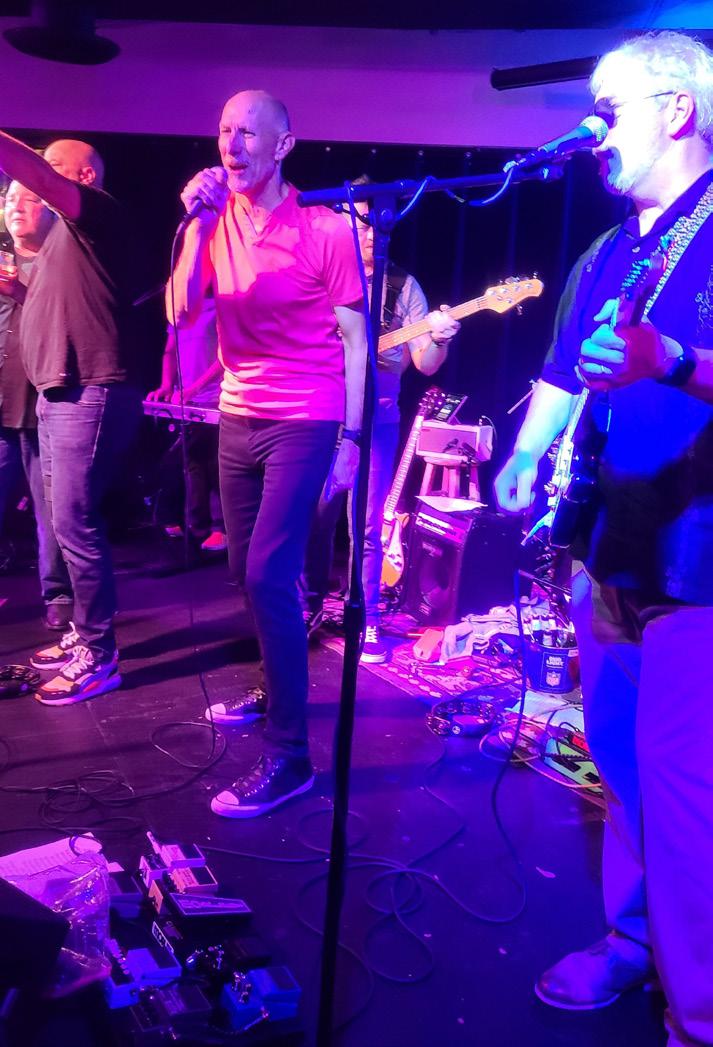
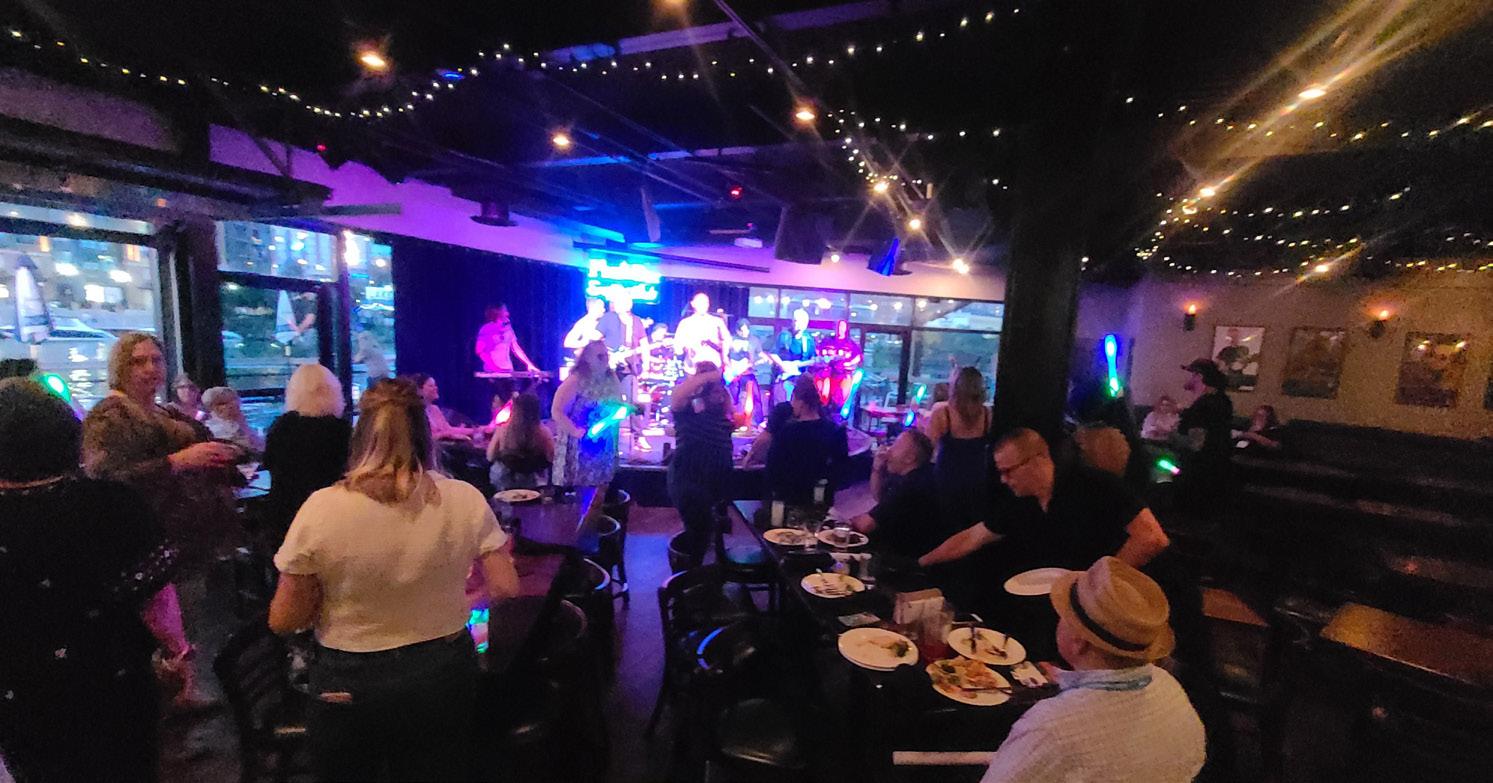
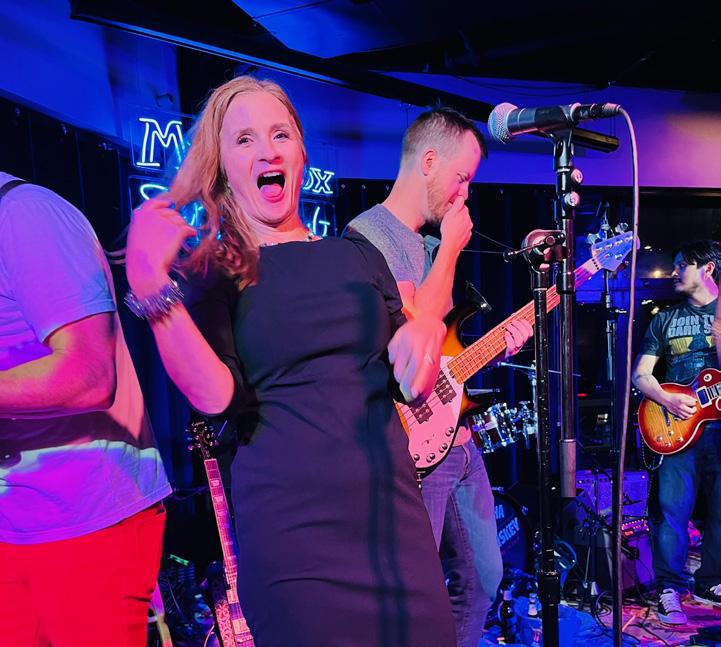
We at the Vermont Paralegal Organization, Inc.’s (VPO) are very fortunate to have Robyn Sweet, CRP, RP, ACP serve on our Board as NFPA Secondary. Robyn wears many other hats. She is a paralegal at Cleary Shahi & Aicher, PC in Rutland Vermont. In addition, she is a biological parent, a stepparent, an adoptive parent, and a foster parent, and she serves as Secretary on the Board of the Vermont Foster/ Adoptive Family Association (VFAFA).
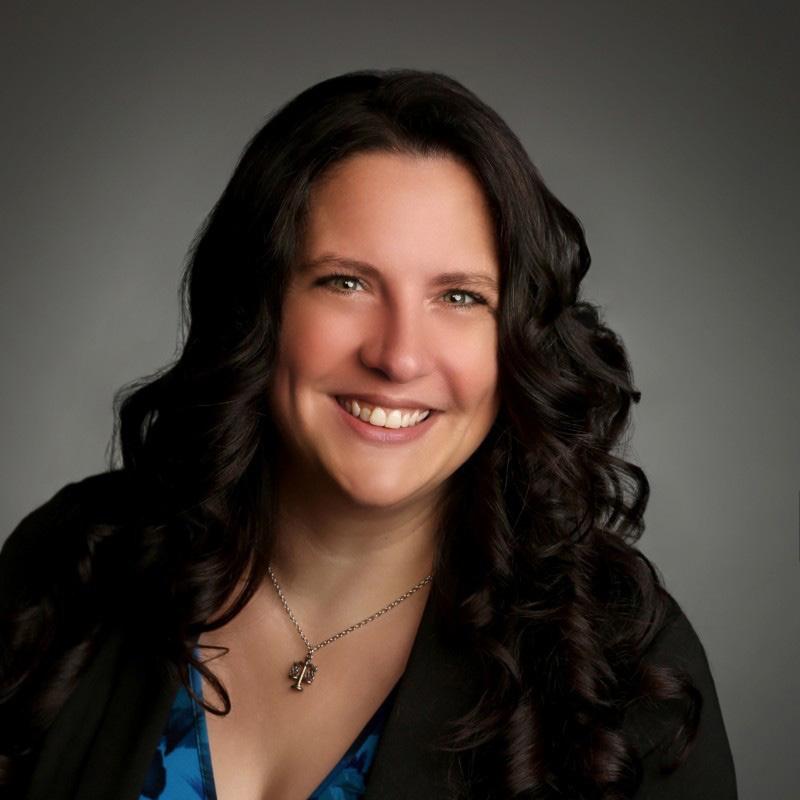
To paraphrase a recent story in the Rutland Herald, as a foster parent, Robyn signs up for a little bit of heart break to help another family be successful. Foster children are abruptly thrown into a legal situation they often don’t understand when the state takes custody of them for their protection. They are among the most vulnerable populations involved in the legal system. They succeed when they have positive adults in their lives – people like Robyn – who show them that they care.
Robyn opens her home to children, at times on short notice and with no real expectation of how long they will be with her. She advocates for the child’s needs wherever it is necessary: at school, in medical settings, with Vermont’s Department of Children and Families (DCF), and everywhere else. She becomes their caregiver while their parents work through services to help them become safer parents. She and her husband, Bill, have been foster
parents since 2014. They have had over 40 children in their home, sometimes for a day and sometimes for a year or more.
Robyn has been involved with VFAFA for about 5 years. She helps enact their mission “…to empower, support, and unify foster and adoptive families by strengthening the systems that care for Vermont’s children.”
She has served as Vice President in the past. Robyn’s primary role as Secretary is to communicate with foster and kinship families to make sure they have the information they need to best care for the children in their homes. Additionally, she is helping them revise their bylaws. VFAFA president Debbie Boyce greatly appreciates her paralegal expertise as they make these revisions. The organization has been in existence for 40 years and the bylaws have not historically had the attention they have needed. Robyn also helps the Board award funds for children in care to participate in special activities or for scholarships for higher education.
Not to be overlooked is Robyn’s ability to connect VFAFA with appropriate legal professionals and serve as liaison between the two parties. It has saved VFAFA countless hours in legal expenses because the problems were already defined and framed in a legal context before discussions with legal counsel occurred. She is always careful to be clear with the Board that she is not a lawyer and never tried to present
herself as one. While work still remains to be done, the organization has been able to maintain the confidence of other organzations, including the Department of Children and Families, and continue serving fostering communities because of the advice Robyn has provided. It would not have happened without her.
In addition to these tasks, Robyn is working with Vermont’s Foster/Kin Care Manager to develop a welcome letter for all who accept children in their homes through DCF. Because of Robyn’s past experiences, she has a unique perspective to offer to those who are welcoming children in their homes.
Judge Advocate General’s Association of Legal Paraprofessionals (JAGALP) respectfully submits the nomination of Anthony Rausch, CRP®, for the Outstanding Local Leader Award for his demonstrated dedication and furtherance of the legal profession and the JAGALP specifically. Anthony is a dual member of both the JAGALP and NFPA
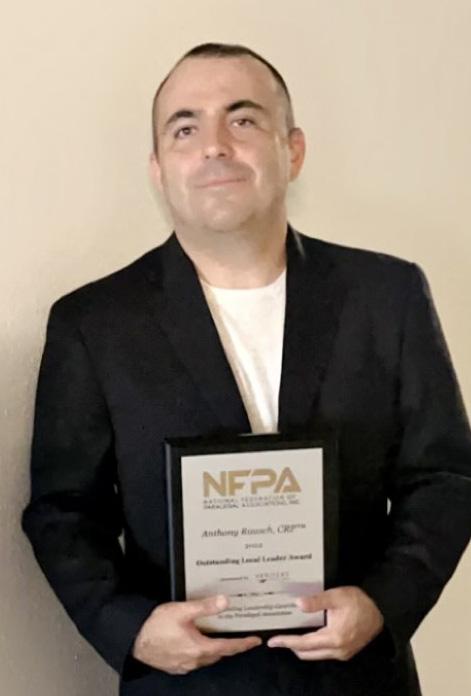
In addition to Anthony’s proud and distinguished military service as a current Sergeant Major in the U.S. Army, Anthony meets the award criteria of influential behavior through his excellent service to the Organization. He focuses on increasing membership in his civilian capacity, offering high-quality CLEs, and educating members about NFPA’s paralegal certifications.
People are drawn to Anthony because of his enthusiasm for the legal profession, dedication, hard work, and continued support of his fellow service members. He is a natural-born leader and wants to make sure all of his brothers and sisters in arms are well cared for, on and off the battlefield, believing that membership with the JAGALP helps military paralegals
transition from the military into civilian life through certification and CLEs.
When Anthony joined the JAGALP, he hit the ground running, promoting the interests and activities of the JAGALP organization in a host of different ways. He is an active participant within the Organization and as a member of the leadership team. He attends nearly every meeting and not as a passive observer but one who offers his ideas and a willingness to take on specific action items to ensure projects move forward.
Some examples of Anthony’s recent efforts to promote interest and active participation include:
• Revised the JAGALP’s CLE approval process to simplify the request process for members to obtain CLE approval and expanded it to include duty station training time and ensure the CLE process meets NFPA strict CLE guidelines;
• Lead the JAGALP’s marketing and membership drive in 2021, resulting in a 50% increase in new members over the year before; includes increasing the dual membership with both NFPA and JAGALP membership category and increasing the number of active-duty members;
• Facilitated virtual quarterly association meetings with both members and non- members to provide updates about the JAGALP to the attendees and raise awareness about the association and its goals;
• Revised, amended, and updated a number of the JAGALP documents, including e-blasts, templates, marketing, and congratulatory letters to active duty military paralegals who successfully pass the NFPA certification exams; and
• Created a membership directory to improve consistent outreach and networking between the JAGALP members.
Anthony has also motivated others to work toward establishing and carrying out professional goals through the following actions:
• Drafted and obtained approval from the JAGALP Executive Committee to create a certification scholarship to award funds towards the pursuit of paralegal credentials from NFPA. Because of these efforts, the JAGALP awarded their inaugural certification scholarship to Corporal Melody Chen in April of this year for winning the Marine Paralegal of the Year Award for her region. Corporal Chen was on track to take the Paralegal Core Competency Exam in 2021 before being accepted into law school;
• Grew a CLE program that was nonexistent before he took on the role into a well-respected and high-quality program. Anthony facilitated three well-attended CLES over the last year, presented by JAG or former JAG attorneys, and other subject matter experts, on a wide variety of legal topics;
• Created the JAGALP’s Membership Committee, which includes a Social Media Coordinator and a Retiree Outreach Liaison. With the addition of these team members, Anthony has increased the JAGALP’s online presence in social media such as LinkedIn, Instagram, Facebook and helped to update the JAGALP website. Anthony’s leadership style is to lead by example, which is why it is no surprise that he was part of the initial round of Army paralegals to sit and pass the PCCE. He felt it was incumbent upon the leadership to motivate others to take the exam by taking the exam themselves.
Anthony is well recognized within the legal community as a committed professional, dedicated to advancing the legal profession, and is often called a “servant leader” among his peers. As evidence of the high praise of those who know him best, I attach several letters of recommendation from those who have known Anthony for most of his paralegal and military career.
The author of those letters includes Lorri Jenkins, JAGALP President; Joseph “Pat” Lister, Immediate Past President of the JAGALP & Former JAG Corps Regimental Command Sergeant Major, U.S. Army; CSM Mike Bost, Command Sergeant Major, U.S. Army, SGM Joshua Quinton, Proponent Sergeant Major, U.S. Army; and SGM Alexander Petty, Command Paralegal NCO, U.S. Army & JAGALP Member-At-Large.
Anthony’s love of the profession is contagious. He assists everyone he meets in pursuing their passion of law; he coaches them in the CRP process, as well as maintaining their CLE. He fosters growth within the NFPA [and the JAGALP] through his mentorship and example of being a CRP himself.
In addition, Anthony’s article, On Becoming a Versatile Paralegal, was published in the recent Army Lawyer, 5th Issue, 2020. Anthony is aware that his military rank may afford him deferential treatment by members of the active-duty sector. However, no matter how many times he asks people to call him Anthony, he says they still commonly refer to him as SGM, which doesn’t always allow him the freedom just to be Anthony. For that reason, he humbly requests that if the Nomination Committee were to select him as the recipient for this award, please do so as Anthony Rausch, CRP®, a member of the JAGALP leadership team, and not in his official rank and title with the U.S. Army of Sergeant Major Anthony Rausch. Thank you for considering his request.
The Judge Advocate General’s Association of Legal Paraprofessionals thanks you for considering the nomination of Anthony Rausch and we welcome any questions you may have about outstanding local leader that is Anthony Rausch.

Congratulations to these members who were honored with an award nomination:Individual Pro Bono Cathleen Sheaffer Outstanding Local Leader Award Karen Sheriff Sue Ann Sarra Student
Q: You are a newly graduated paralegal and have just started your first paralegal job. Your attorney has texted you at 8PM on a Friday night asking you to draft a pleading as soon as possible. Being you are new, you want to impress. How would you respond to the attorney? What legal principles might apply? How would you set boundaries and limits on your time with your attorney? What impact could being an exempt or non-exempt employee have on the issue?
A: Honestly, I would do it immediately if possible. From my experience, I have found that my best work gets done at nighttime. There’s a big caveat on that “if possible”, though. Many factors are not known in this hypothetical situation, leaving several questions unanswered. What is the nature of the case? What is my relationship with the attorney? Is it one of an independent contractor (one I would prefer), or is it one of an hourly employee?
Am I contractually bound to only work certain hours or do certain services? Am I able to draft the pleading wherever I happen to be at 8PM on a Friday?
Should the answer to all of these questions be in the attorney’s favor (i.e., contractor, nighttime employee, urgent case, workfrom-home or other location, et cetera), I would absolutely draft this case. In making an impression on an attorney further than an interview, one needs to be available at all times necessary to take
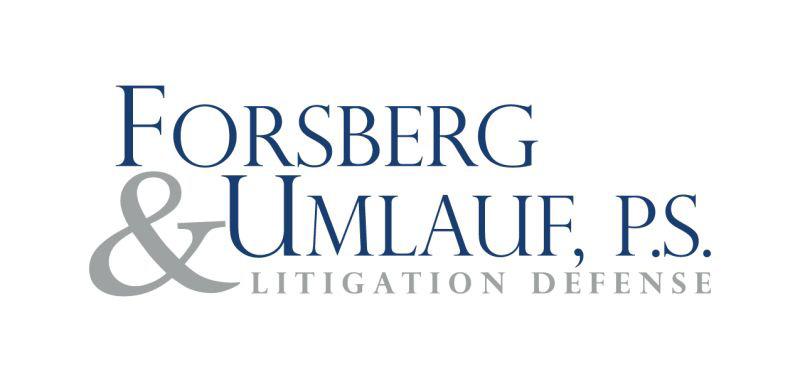
a case. I’ve learned this best from one of my law professors, Dr. John Eichlin, who has repeatedly answered and had full conversational emails with me (more than some professors do), at 3AM. I fully expect that when I am working within the law, I will have the same consistent response that Dr. Eichlin had with me. The most interesting cases will come to you at night.
Most courthouses are not open on Saturdays or Sundays. Depending on the severity of the case, that time could be used to ensure that the requested document is as complete as possible, and to prepare for said trial. As a lawyer or paralegal, do you ever truly get a day off? Do you ever truly work a day in your life if you enjoy the kind of work you do? I want to work in the law- or lawlibrary fields because they are designed, in a majority of instances, to help people. The best way to do that is to take the request as given, and address it as soon as possible.
I would note that context matters here with regard to the case involved as well.
One can understand drafting, say, a custody complaint (emergency petition) on a Friday night. There comes a point where it would be considered excessive, sort of a “boy who cried wolf” situation. If there is an obvious importance to the general public or to the client involved, I’d do it.
If it’s something easy, reasonable, or nonurgent, it can wait until the weekend is over.
Understand also, just because it’s a Friday doesn’t mean it’s a day off. An educator by the name of CGP Grey on YouTube offered
a video about scheduling weeks with a job, a class, or any other life event, and in following his principle, I have felt a drastic improvement in my quality of life. It’s very possible that Saturday could be another day at the office for me, to prepare documents that are necessary for next week’s cases.
A non-exempt employee is required to be paid overtime for any hours worked over 40 in a week. A non-exempt employee would be perfectly in the right to deny the attorney’s request. 29 CFR Part 541 states “the salary or fee exemption does not apply to certain licensed or certified doctors, lawyers, or teachers.” The paralegal is not a certified or licensed lawyer, and therefore, generally falls under the non-exempt category. In the event that the paralegal was exempt for some other reason, they would not have a choice unless it is outlined in their responsibilities with the attorney.
CITATIONS:
• CGP Grey, Weekend Wednesday. 202008-25. https://www.youtube.com/ watch?v=ALaTm6VzTBw
• 29 CFR Part 541: https://www.paralegals. org/files/29-CFR-Part541.pdf
SCHOLARSHIP SPONSORED BY:
Q: You are a newly graduated paralegal and have just started your first paralegal job. Your attorney has texted you at 8PM on a Friday night asking you to draft a pleading as soon as possible. Being you are new, you want to impress. How would you respond to the attorney? What legal principles might apply? How would you set boundaries and limits on your time with your attorney? What impact could being an exempt or non-exempt employee have on the issue?
A: Establishing clear boundaries and expectations early on is a key component in any healthy working relationship. Long hours and high demands can easily upset a budding paralegal’s delicate work / life balance.
Presented with the scenario of receiving a text from my attorney at 8PM on a Friday night to draft a pleading post haste, I believe I would delay my response in order to evaluate my personal mind space. As a paralegal, I would be guided by basic paralegal principles of competence,
diligence, and professional integrity.
After a thorough evaluation, I would politely respond by moving the communication to trackable form of correspondence, i.e. email, and address urgency and possible billing issues.
ANNE NEWCOMER, RP®, PA.C.P., CEDS PITTSBURGH, PA
The Director of Marketing is responsible for marketing NFPA as well as securing and retaining sponsors, exhibitors, and advertisers. The Director of Marketing will communicate with the President, the Secretary and Director of Leadership Development, the Region Directors, local member associations and all other groups or individuals as necessary to function in this position.
Anne Newcomer, RP®, Pa.C.P., CEDS is a litigation paralegal specializing in complex commercial cases and eDiscovery at Meyer
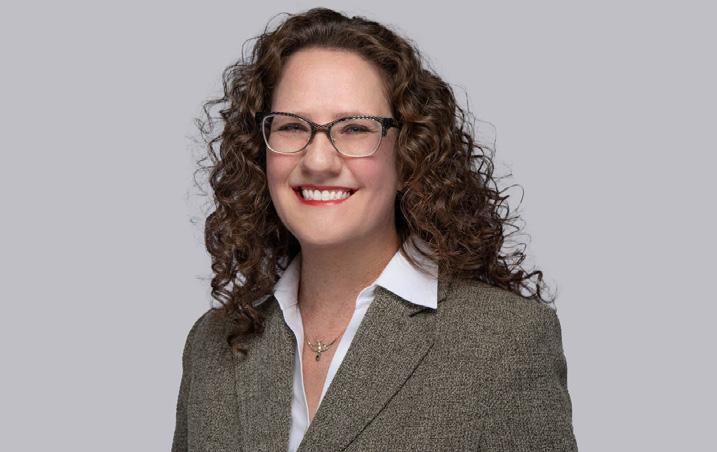
Unkovic & Scott, LLP in Pittsburgh, Pennsylvania. Anne assists with cases from initial filing through trial and appeals.
Anne has been a member of the Pittsburgh Paralegal Association since 2000. From 2012 through 2022, Anne has served on the PPA Board of Directors in a number of different positions, including NFPA Primary Delegate, NFPA Secondary Delegate, Director, and Treasurer. She was also Chair of the Marketing Committee and a member of the following committees: Mentoring, Awards; Paralegal Certification Ambassador; and the Litigation Specialty Section. Anne previously served as the NFPA Case Law Review CoCoordinator and was a member of the NFPA Case Law Review Committee.
Anne obtained her Bachelor’s Degree in English from York College of Pennsylvania. Anne earned NFPA’s PACE Registered Paralegal (RP®) certification in 2011. In 2011 she also obtained the Keystone Alliance of Paralegal Associations’ Pennsylvania Certified Paralegal (Pa.C.P.) credential. In 2022 Anne earned the CEDS certification through the Association of Certified eDiscovery Specialists.
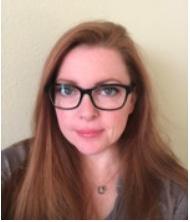
The Director of Paralegal Certification will assist the President in leading NFPA and the paralegal profession by overseeing and managing the administration of NFPA’s two certification exams, the Paralegal CORE Competency Exam® and Paralegal Advanced Competency Exam®, and the Paralegal Certification Standards Committee, by addressing issues related to paralegal certification, and by being the main spokesperson regarding paralegal certification by NFPA.
Lisa Vessels, RP®, CP®, lives in Miami, Florida, and is employed by Duane Morris LLP managing the docketing function for her firm’s U.S. offices. Lisa has worked in the paralegal profession since 1992 with experience in commercial litigation, corporate contract law, and commercial aviation equipment leasing and sales.
Lisa is a former two-term President of the South Florida Paralegal Association and the Florida Alliance of Paralegal Associations. As an active member in both organizations, she has served in many additional roles such as Webmaster, Treasurer, Secretary, and Membership Chair since joining in 2005.
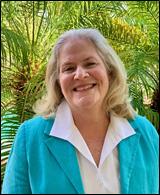
Lisa served on Miami-Dade College’s Paralegal Studies Program Advisory Board from 2006 to 2012, serving as chairperson from 2010-12. She has served four threeyear terms as a non-lawyer member of The Florida Bar’s Unlicensed Practice of Law Committee for the 11th Circuit in Miami-
Dade County, and is currently serving one of the Florida Bar’s Florida Registered Paralegal Disciplinary Committees. She was an adjunct instructor at Florida International University’s Paralegal Studies certificate program from 2006 to 2008.
Lisa served as NFPA’s Regulation Review Coordinator from November 2009 until September 2012, and was an active participant on the PCC Exam Development Committee from its inception in 2008 through its launch in 2011. In 2012, she was elected as NFPA’s Vice President and Director of Positions and Issues, and 2014, she was elected as NFPA’s President. From 2016-2018 she served in the role of NFPA’s Board Advisor.
Lisa earned her Bachelor’s degree in Paralegal Studies from Nova Southeastern University in 2005, and Associate’s degrees in Computer Information Systems and Computer Programming (Visual Basic) from Miami Dade College in 2002. Lisa earned the Certified Paralegal® designation in September 2005, earned the PACE® Registered Paralegal designation in September 2012, and held the Florida Registered Paralegal registration of The Florida Bar from 2008 to 2018.
The Secretary and Director of Leadership Development will be responsible for taking minutes at official NFPA® meetings and overseeing the daily operations of NFPA® through NFPA®’s management company, as well as ensuring NFPA® is compliant
with all state and federal regulations and NFPA®’s Annual Convention.
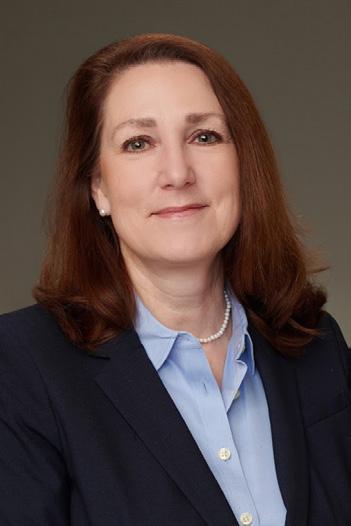
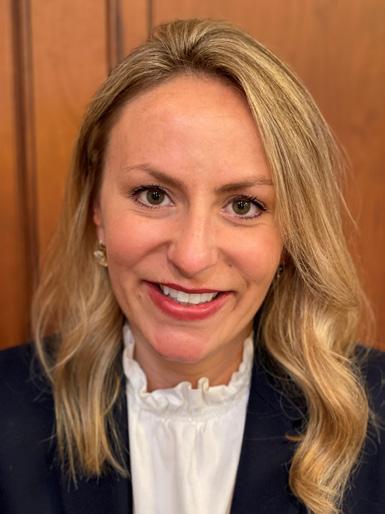
Laura Timm is paralegal in Pittsburgh, PA, her hometown, focusing in areas of law such as, corporate, board governance, mergers and acquisitions, and contracts. Laura also has experience within employment law.
Laura has been a member of the Pittsburgh Paralegal Association since 2011. Laura has served on the PPA Board of Directors in a number of different positions, including Treasurer, Special Projects Committee, and Keystone Alliance Secondary Delegate. Laura has also served the Keystone Alliance of Paralegal Associations Board of Directors in a number of different positions, including the Credentialing Committee and Nominations Committee Chair.
Laura obtained her Bachelor’s Degree in Communications Studies from West Virginia University, Paralegal Certificate from Duquesne University, and Masters of Business Administration from Point Park University. Laura earned NALA’s Certified Paralegal (CP®) certification in 2015. In 2022 she also obtained the Keystone Alliance of Paralegal Associations’ Pennsylvania Certified Paralegal (Pa.C.P.) credential.
The Region II Director is responsible for helping all NFPA associations which are located throughout the Mountain West and Midwest states of Arkansas, Illinois, Kansas, Louisiana, Minnesota, Missouri, Nebraska, New Mexico, North
Dakota, Oklahoma, South Dakota, Texas, Utah, Wisconsin, and Wyoming.
Deana is currently specializing in civil litigation, estate planning, and small business matters, and now has over 26 years’ experience as a paralegal. She regularly volunteers with such organizations as the Colorado Bar’s High School Mock Trial competitions and American Association for Justice, and works to help the participants understand the qualifications and dedication necessary to succeed.
A Colorado native, she earned her JD degree in 2011, after having completed her BA in Political Science in 2008 and earned her AAS in 2002.
Deana has been involved with the Rocky Mountain Paralegal Association since 2018, starting out as an at-Large Director, and shortly after was elected to serve as the Primary Delegate. She has also volunteered with NFPA to assist as Records CoCoordinator, UPL Committee member, Government Affairs Committee Chair, Marketing Advocacy Committee member, and, the Strategic Planning Committee (2020). She has filled a number of leadership
position on numerous other Boards (GAWL and Phi Alpha Delta), and has volunteered with other organizations including: Wounded Warrior Project; The Pueblo Domestic Violence Community Task Force, Inc. Ghost Walk; Nicholas House; Hosea Feed the Hungry; Toys for Tots; Project Open Hand: Atlanta Community Food Bank; American Red Cross; Planned Parenthood; United Way; Firstbook.org; Kids Need to Read; Reading Tree; and, University of Colorado Alumni Association.
The Region IV Director is responsible for helping local associations in Delaware, Maryland, New Jersey, Pennsylvania, Virginia, Washington, D.C. and West Virginia.
Don is an experienced Estates and Trusts Paralegal with 16 years’ experience. He’s
highly skilled in all aspects of complex estate and trust administration, including preparation of Pennsylvania, New Jersey, and Delaware probate related forms and associated tasks, formal accountings and other court-related filings, preparation of state and federal death tax returns and gift tax returns, and preparation and filing of federal and state fiduciary income tax returns.
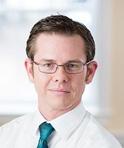
Don is a long time and active member of the Chester County Paralegal Association, having served in the past in all Officer positions, and as CLE Coordinator, Website Coordinator, and NFPA® Primary Delegate. He also served as webinar coordinator for NFPA® 2018-2020. He received his Certificate in Paralegal Studies from Villanova University. Don maintains the PACE Registered Paralegal® (RP®) and Pa.C.P. Pennsylvania Certified Paralegal (Pa.C.P.) credentials. He obtained a Piano Performance Bachelor’s Degree and Piano Pedagogy Master’s Degree from West Chester University.
The University of Cincinnati Online is a premier research and higher learning institution whose mission is to help busy professionals build a better future. UC Online’s fully remote, American Bar Association-approved law and paralegal programs are taught by
licensed attorneys and equip students with the tools needed to advance their careers in the legal field. Discover how UC Online can help you achieve your career goals at online.uc.edu/programs/law. Email: onlinerecruitment@uc.edu

CORE REGISTERED PARALEGAL (CRP)
CERTIFIED FROM JULY - SEPTEMBER 2022
Angela Guadamuz
Jaclyn Mullins
John Thomas
Danielle Peynado
Barry Robinson
REGISTERED PARALEGAL (RP) CERTIFIED FROM JULY - SEPTEMBER 2022

Karrie Blevins
Robert A. Marshall
Tara Bateman
David Carpenter
Philip Holtam
Be a step above the rest Join the Paralegal Division of the State Bar o_f Texas
PD provides many benefits for career growth:
•Networking with paralegals across the state
• Powerful CLE opportunities such as Texas Advanced Paralegal Seminar (TAPS)
• Professional Development
• Professional magazine with substantive articles and updates from across the nation
an organization designed just for YOU! ENHANCE YOUR CAREER by becoming a part of PD today. Go to www.txpd.org and see for yourself or contact the PD Coordinator via email at pd@txpd.org or call (806) 443-2209
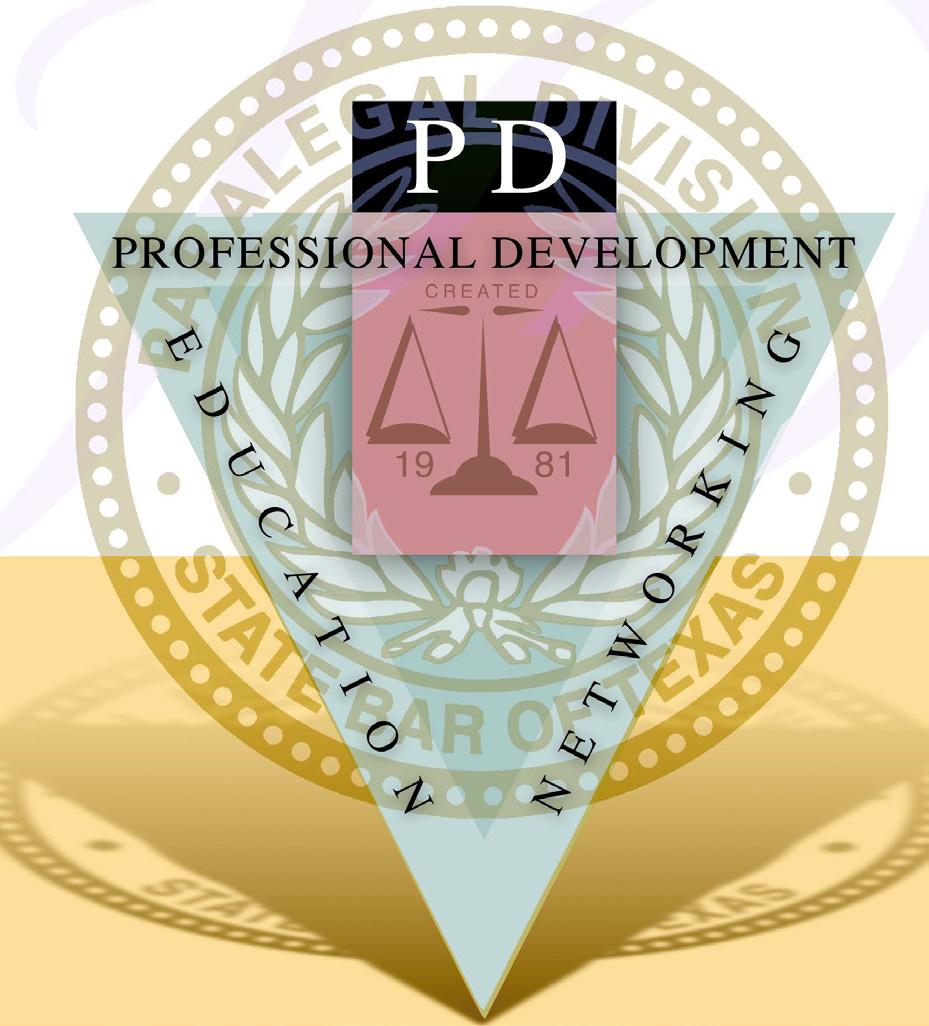
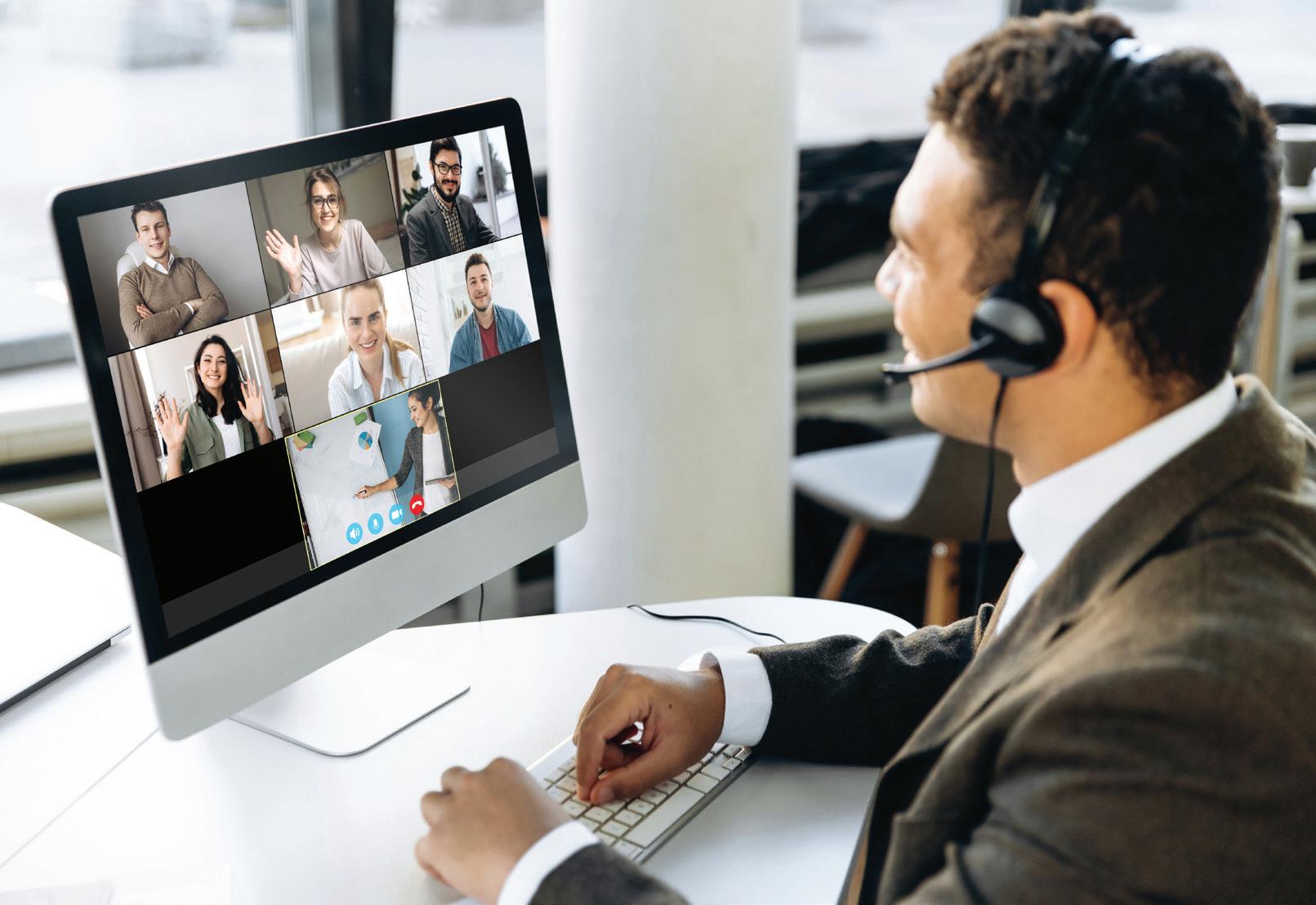
Upsolve uses First Amendment to deal a modest but important blow to UPL. Is it the basis for a playbook? Time will tell.
In May, a federal district court in New York granted an injunction in favor of Upsolve, Inc , a nonprofit legal technology company founded by Rohan Pavuluri, a public interest entrepreneur who cut his teeth in Harvard Law’s A2J Lab, and Rev. John Udo-Okon, a pastor from the South Bronx. Both Pavuluri and Udo-Okon both were interested in providing free legal advice to individuals facing debt collection actions. See Upsolve Inc. v. James, No. 22-cv-627 (SDNY, May 24, 2022).
The predicaments faced by many New Yorkers are fairly typical of those faced by so many individuals, whether indigent or lowincome by typical measures, throughout the United States — they simply cannot afford lawyers to assist them with their pressing legal problems. They are the faces of the profound access to justice crisis in the United States, putting them at omnipresent risk of losing their livelihoods, their homes, or even worse fates. Through a carefully designed initiative called the American Justice Movement, Upsolve and Rev. Udo-
Okon would train a group of “justice advocates” to give targeted, limited legal advice to individuals facing debt collections.
The Upsolve litigation involved a novel legal theory, one that came in essentially two parts. The First Amendment of the Constitution protects the right of free speech and association, and the status of these rights as fundamental obliges the government to come up with a compelling state interest before it can restrict these rights.
Further, the government must make the case that these restrictions are narrowly tailored to accomplish these interests. In this case, the position of the plaintiffs was that the limitation of legal advice to lawyers, as is clear under New York statutes governing the so-called unauthorized practice of law (“UPL”), impinged on the plaintiffs’ right to associate in order to fulfill their objectives (think, as a ready analogy, the situation of employees joining labor unions or individuals joining the NAACP) and, moreover, impinged on the ability of these individuals to express their views through the advice given to needy individuals.
That the federal courts had seldom considered the question of how UPL laws unconstitutionally restrict nonlawyers’ ability to render legal advice is not altogether surprising. UPL laws
are ubiquitous and ancient. The deal is that lawyers provide legal services and nonlawyers stay out of this domain. No principle has been more fundamental to the lawyers’ regulatory guild. In the rare instances in which disputes have arisen, federal and state courts have reinforced the point that restraints on non-lawyer legal advice and representation are important to protect, for they ensure that individuals will have quality representation from uniquely skilled and specially-trained individuals. And occasionally the courts (along with commentators, usually themselves lawyers and law professors) will ground this sacrosanct principle in the imperative of securing the rule of law. Who better to protect the rule of law than lawyers?
And yet much of this classic analysis is ipse dixit. It makes sense only as a self-referential encomium to the distinct value of lawyers in providing representation and advice, arguably because of their training and their legal obligations as officers of the court. The skills lawyers develop and sharpen through their work, beginning with law school and continuing in their professional roles, is not in dispute anymore than it is disputable that certain health issues demand a physician and not another kind of health professional.
However, at the heart of the claim for stringent UPL regulations is that there cannot be an area of civil justice in which circumstances warrant creative solutions
to address needs otherwise unmet. Again, the medical analogy is apt. Many health situations can and should be addressed by individuals who are not licensed physicians. Indeed, we could scarcely imagine the health consequences of a regime in which anything involving health and medicine is scrupulously restricted to physicians. See, e.g., Post 275 (documenting the varied roles and credentials of healthcare providers, noting that less than 10% have MD or DO degrees); Post 140 (same). If there was ever an era in our history in which these restrictions were animate, there are long past and obviously anachronistic.
With lawyers, however, the lines drawn between who may provide legal services and who may not have been persistent. The Upsolve litigation is one piece in what is a steadily increasing attack on this citadel of exclusion, on this guild. Building upon a plethora of data illuminating the breadth and scope of the A2J crisis, the claim here is that UPL restrictions, such as those in New
York, cannot meet the needs and demands of our more vulnerable citizens. Legislative efforts, regulatory sandboxes, and judicial adaptations are flourishing and we are in a moment in which major changes in the way legal services are regulated are changing. Intriguingly, the Upsolve lawsuit represents the use of a very different weapon in this battle: American constitutional law.
Per the court’s opinion, “Plaintiffs advance two theories under the First Amendment. First, they claim the UPL rules infringe on their right to associate with potential clients and access the courts. Second, they claim the UPL rules infringe on their right to give legal advice under the Free Speech Clause.” Id at 13.

The court considered carefully and rejected the first of the plaintiffs’ two legal arguments. Judge Paul Crotty saw the lodestar Supreme
Court cases, one involving the NAACP and the other the ACLU, as standing for an ultimately narrow proposition, and that is that “[t]he lawyers in those non-profit cases sought to vindicate constitutional rights, such as equal protection against discriminatory laws, because such causes ‘implicate[d] expressive values’ for both the lawyers and their clients. Upsolve, at 16 (quoting from Jacoby & Meyers, LLP v. Presiding Justices of the First, Second, Third & Fourth Departments, 852 F.3d 178, 185-86 (2d Cir. 2017)). The emphasis is on lawyers’ associational rights and so it would not cover, says the court, efforts by “nonlawyers” to engage with clients, for it is the clients’ expressive rights that are being furthered by this association between the justice advocates and the individuals with legal needs.
This narrow reading is ultimately too narrow, in that it reads the classic association rights cases, NAACP v. Button, 371 U.S. 415 (1963) and In re Primus, 436 U.S. 412
(1978), as turning on the associational interests of the lawyers qua lawyers. This is rather peculiar, given that the overall effort in all of these matters, including the American Justice Movement at issue in the Upsolve litigation, is to advance the welfare of these clients and enable them to vindicate their interests in court. But this argument will need to live for another day, as the court concludes that the plaintiffs are unlikely to succeed on the merits of this claim.
The second claim proved more persuasive to the court and this free speech claim is the underpinning of the court’s holding in favor of Upsolve and Rev. Udo-Okon.
The court took us through the distinction between protected “conduct” and protected “speech” of a more traditional sort, the former deserving only intermediate scrutiny and the latter being subject to the strictest of scrutiny. What’s the key difference between the two? Insofar as the regulation is (as it clearly is here) content-based, this is at the core of what the First Amendment protects. Here, the justice advocates were designed to give “pure verbal speech,” and we’re not arguing that they should be able to engage in conduct that would more sensibly be construed as legal practice.
Judge Crotty takes from a not especially prominent Supreme Court case from a dozen years ago, Holder v. Humanitarian Case, 561 U.S. 1, 14–16 (2010) the basic framework within which to consider the application of this New York UPL law on these plaintiffs. “The Humanitarian Law Court set forth the following rule:
for as-applied challenges, courts ask whether plaintiffs’ own speech is directly or incidentally burdened, not whether the statute on its face imposes an incidental burden on speech.” Upsolve, at 20. The key point, the court here says, is that the plaintiffs are being punished because of the message they are communicating. Although an ideological statement or the expression of any particular opinion, the communicative message is the legal advice they are giving to their clients. UPL laws, as the court notes, are “speaker based,” id. at 22, that is, they are restrictions on non-lawyers as a class; moreover, these laws “focus[] on whether the [speaker] is speaking about a particular topic.” Id. (quoting from Barr v. Am. Ass’n of Pol. Consultants, Inc., 140 S. Ct. 2335, 2347 (2020)). These are classically content-based restrictions upon speech and are subject to strict scrutiny.
The court then turns to the question whether the fact that these UPL restrictions as applied to the two plaintiffs are part of a comprehensive licensing regime creates a sort of governmental safe harbor from which close interrogation of the restriction would be unwarranted.
There is one concurring opinion from Justice Byron White in Lowe v. SEC, 472 U.S. 181 (1985) that supports this safe harbor theory. Justice White says in Lowe that “the government can “enact[] generally applicable licensing provisions limiting the class of persons who may practice the profession” without infringing on anyone’s freedom of speech.” Id. at 232 (White, J., concurring). Ultimately, the court in Upsolve finds this theory unsatisfactory, rejecting cases from outside the 2nd
Circuit that involve lawyers and legal regulation and making the strong claim that legal advice, by contrast to other forms of specialized knowledge and advice whose origins go all the way back to the Founding, “lacks that clear history of regulation” and, therefore, “[w]ithout an established historical basis to do so, courts today cannot treat pure legal advice as a sui generis category of speech that is immune to constitutional scrutiny.” Upsolve at 26.
Applying strict scrutiny to this contentbased regulation, the court views the traditionally strong justifications for UPL rules as “less compelling in the context of Plaintiffs’ specific, narrow mission.” Id. at 27. The court bats away the various arguments that this scheme of justice advocates will not address adequately the problems of debt collection, noting that it is not a failure of the project that it does not, solve any and all problems. Furthermore, the law is so broad-ranging that it is not narrowly tailored, as the Constitution demands, to the problem identified.
Interestingly, Judge Crotty notes, with the benefit of an amicus curiae brief by leading access to justice scholar-advocate Rebecca Sandefur, that there are various reforms underway in states that illustrate how an evidence-based, carefully constructed system for providing legal advice (and even representation) by allied professionals who are not lawyers could accomplish the aims stated as important by New York and its various amici supporters.
The Upsolve decision by this federal trial court is an important victory, for those in
need of legal help in debt collection matters in New York state, and also symbolically for the access to justice movement.
To focus on the latter issue, this is the single most consequential legal holding supporting a First amendment claim against UPL restrictions. There is dicta in various cases and many law review articles, but until Upsolve v. James, no court had gone so far as to invalidate, albeit here only as an as-applied challenge, a key element of modern UPL restrictions on the provision of legal advice by nonlawyers. Moreover, given the groundswell of reforms in various states, Utah and Arizona most notably at present, this case comes along at an auspicious time. Imprinted on this decision, and the presumably continuing litigation if New York decides to appeal this decision or similar lawsuits are brought in other jurisdictions, is the hard work by many access-to-justice warriors. This is a cogent example of impact litigation and how legal strategy can be formulated to advance important social causes through discrete, yet meaningful, steps.
At the same time, the Upsolve decision is narrow and equivocal in a number of respects. There is caution at various places and junctures in the court’s opinion, and we should acknowledge the limits of the decision. I will describe these cautionary elements, and then conclude on a note of optimism and hope.
First, Judge Crotty’s opinion stresses that this lawsuit is just an as-applied challenge.
Therefore, it does not strike down on facial grounds any of New York’s UPL restrictions. There could be many projects in which nonprofit organizations and other individuals who are not lawyers seek to provide legal advice and limited purpose representation that would run afoul of this UPL law and would not be inconsistent with anything the court says in its decision in Upsolve. The basic logic of the constitutional argument against UPL restrictions on legal advice by nonlawyers is that they are intrinsically content-based restrictions precisely because they distinguish between two types of speakers, those with a valid attorney credential and those without.
While it is not clear exactly how the court would distinguish other individuals or groups who are furnishing legal advice to needy clients from these two plaintiffs, Upsolve and Rev. Udo-Okon, the court emphasizes that, in any event, this is decidedly not a facial challenge. This is congruent with the legal strategy of the plaintiffs, but it is worth noting that UPL regulations can be attacked, in the absence of a facial challenge, on a case-by-case basis. We should not underestimate this burden, especially given that not all such projects will have the enormously important support of Mr. Pavuluri as the benefactor and impresario of these litigation efforts.
Second, as already described above, the rejection of the right to association claim is an unfortunate setback in this impact litigation. The line drawn between advocacy on behalf of clients undertaken by lawyers (as in the myriad cases decided by the Court over the last several decades) and those undertaken by individuals
who are not lawyers is an unstable one.
Thus, Judge Crotty’s decision is disappointing in its rather summary rejection of this line of cases, cases that may well support an associational claim that could chop away considerably on UPL restrictions. It is not inconceivable that such a claim could find its way up to the Supreme Court, given the separate issue that continues to percolate in discussions of guild regulations, that is, whether the Court’s decisions in Janus v. AFSCME, 138 S. Ct. 2448 (2018) and North Carolina State Bd of Dental Examiners v. FTC, 574 U.S. 494 (2015), neither of which bear specifically on the First Amendment issues in the Upsolve litigation to be sure, might undergird an omnibus legal strategy to challenge lawyers’ monopoly over legal service provisions.
Third and finally, the court is scrupulous in drawing a distinction between conduct in the form of direct provision of legal services and conduct that is about communicating a message — as Judge Crotty puts it, “pure verbal speech.” The court makes this distinction explicitly when it notes: “[M] any UPL cases have focused on specific ‘conduct’ that non-lawyers sought to undertake. Non-lawyers have been excluded from ‘drafting’ pleadings and “filing” legal documents. Conduct could also include ‘representing’ clients in a courtroom or proceeding. These conduct-focused cases are inapposite, as Plaintiffs do not seek to do any of these activities.” Upsolve at 18 (citations and footnotes omitted).
But this distinction, in both theory and practice, is ultimately untenable. Providing legal advice in myriad forms is clearly, as
both parties acknowledge in this case, the unauthorized practice of law under relevant New York law. Why would the narrowness of this particular rendering of advice — i.e., giving clients advice about how to fill out forms — demarcate a meaningful distinction between acceptable restrictions on legal practice by nonlawyers and those which are unacceptable under state law?
It should not be a surprise that the good judge wants to limit the scope of the decision, as accepting the porousness of the line between relatively minor advice and actual representation (if not necessarily in civil court, then in all other relevant settings in which a client is being informed and counseled) does represent a fullbore threat to the entire scheme of UPL regulation. But, then again, the accessto-justice warriors whose efforts underlay the legal strategy at work in the Upsolve litigation are willing to take this all the way down this slippery slope. We should be reminded here that the UK lacks a regime of UPL, even though it regulates in various ways the actions of activities of lawyers and other advocates. See Post 106 (discussing UK regime in which certain “reserved” legal services can only be performed by licensed lawyers). And so courts should continue to be reminded that licensing of lawyers through the traditional methods and the correlative prohibitions against UPL are not part of any sort of state of nature. They are neither inevitable nor, for reasons associated with the worsening access to justice crisis, warranted.
Having dwelled on what the court did not do, it is worth closing on a note of hope.
This case represents a major move forward — perhaps even a leap. In conversations involving this lawsuit (in which I and many others took part), one question was whether the state of New York would bother to defend this UPL law against this as-applied challenge. All they had to do to make this case go away is to assure the court, under direct questioning, that it would not prosecute Upsolve and Rev. Udo-Okon for providing this very limited advice to these individuals facing debt collection. But they declined to do. See Upsolve, at 8-9 & note 4 (quoting oral argument and thus concluding that “[t]he Attorney General has not rebutted the presumption of enforcement”).
It appears that the position of New York, and perhaps other attorneys general in other states, is that their UPL restrictions must be defended against efforts to chip away at the regulatory edifice. This defiance, if I am correct in this prediction, presents an opportunity. Lawyers should look for states where such challenges are potentially viable. This could, as with the Upsolve litigation, involve principally federal constitutional challenges under the First Amendment, but it might include claims based upon other federal laws (equal protection, due process, antitrust laws, and perhaps others I am missing here) and also claims under state constitutions, the latter of which is often a neglected area of potential legal challenges.
On a related note, the impact of the Upsolve suit, assuming that it is not reversed on appeal, could be consequential for statelevel reform efforts, in much the same way that legal movements in the United States usually involve an admixture of litigation, statutory change, and administrative regulation. For those of us who thought that litigation would be the weakest part of this strategy, see Post 240 (me noting at least the possibility of constitutional challenges that might break up the logjam of bar federalism), especially given that the audience for these arguments are lawyers sitting in judgment as judges. After all, the Upsolve case suggests that a more hopeful future for access-to-justice reform and guild-busting may be just around the corner.
Article originally published on May 26, 2022 at https://www.legalevolution. org/2022/05/new-and-noteworthy-up solve-inc-v-james-303/. Reprint permission received from the author. by the Regulations Committee.
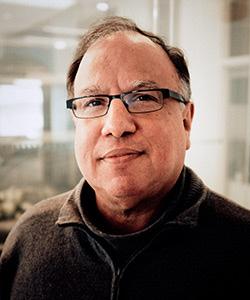
In preparing this article, I know that my audience includes some who may have never dealt with racism but let us be truthful; most of you have been incited by your beliefs and accusations.
Some have the color-blind racial ideology, the belief that people should be regarded and treated as equally as possible, without regard to race or ethnicity. While a colorblind racial ideology may seem to be a pathway to achieve equity, it ignores the manifestations of racist and discriminatory laws and policies which preserve the ongoing processes that maintain racial and ethnic stratification in social institutions.
Racism is insidious, and racist policies and practices have undergirded not only the nature of our economy but our growth as a Federation. Getting at these deep roots requires specific attention to ensure we are being initiative-taking to embed antiracism in all that we do and to minimize the negative, disproportionate outcomes experienced by being black in America.
I recently attended the Joint Conference in Minnesota, and I observed diversity firsthand. I sat amongst you, being the only black attendee in the audience. I listened to your concerns and questions, I even counseled some on how to manage
diversity in your local association. A friend tried to protect me from what was obvious by the use of phrases, such as “different colored mayonnaise or mustard in my potato salad,” but it all boiled down to NFPA has a long way to go and for growth to be ever present, we will have to change our ways of thinking and stop talking about change, but instead, be about change.
There should not be any tolerance for racism, hate and discrimination, as in a healthy and safe society, all people and their diverse backgrounds are to be celebrated. More than tolerance, we need to move in the direction of honoring, celebrating, and learning; even if there is not diversity in your immediate association, now is the time to prepare until it is the norm.
Urgency, transparency, and accountability is what we as an association should strive for. Simultaneously, we must put in place accountability and transparency in our equity-driven work. Without these two things, it is all too possible to deprioritize the urgency. Conditions will never be perfect. And while conditions may improve, we must act on what we can do right now to reduce harm and help the people we serve. We cannot wait any longer, so it is time to make challenging decisions with urgency, and operate with a sense of responsibility,
intentionality, and accountability to those of us who are experiencing inequity.
If NFPA is genuinely interested in growing the Federation, we must first establish strong leadership to eradicate racial and other forms of disparities in all aspects. NFPA should center equity in budgeting, planning procurement, and policymaking. If NFPA is going to succeed, it must establish public involvement through transformational community engagement, access to information, and decision-making opportunities. NFPA should look to improving equitable access to services, programs, and resources including education, access to justice, and opportunities to gain experience in the Federation and move in a direction to foster an inclusive and stronger association and promote equitable practices.
NFPA’s objectives in leadership should be a sense of normalcy, not just the talk, but why is building diversity such a hard pill for some to accept? The concepts of racial justice should be acknowledged and familiarized by using concepts and tools that will support efforts to put equity at the forefront. The Federation should organize efforts to build organizational capacity to all affiliated with NFPA for connection, cohesive and amplified
impacts. Foster both internal and external partnerships by reaching outside the box.
Those of us who take on the role of leadership in NFPA and local associations should embed racial equity into every part of NFPA. The role of leadership in NFPA is to guide and direct prominent levels operationalizing diversity, equity, and inclusion (DEI) work. Leadership from NFPA should inspire to expand by sharing and collaborating to build on what is already happening and what is going to happen regardless of whether you are ready to receive it.
As a Federation, we should strive to diversify and create inclusive teams, as racial disparities persist across key indicators of success in this country including health, education, housing, and economic opportunity among others. It is time for white people in America to truly contend with its legacy of slavery, and any attitude, behavior, practice, or policy that explicitly or implicitly reflects the belief that Black people are inferior to another racial group. Anti-Black racism is reflected in interpersonal, institutional, and structural levels of racism. Those barriers may remain until white people in America truly begin to cope with its history. “There are those in this society that still hold on to the idea that the Civil War was not about slavery, it was about states’ rights or Northern aggression against slavery,” says Karlos Hill, a professor of African and African-American studies at the University of Oklahoma and the author of Beyond the Rope: The Impact of Lynching on Black Culture and Memory.
As a Federation, we should familiarize ourselves with history that may or may not be pleasant for some of us to hear and/or receive or even accept. We must acknowledge that white people in America wronged people of color everywhere for years and years and compensate us for what you took from us. Our lands, our lives, our families, our names, our
children, our dignity, and you know what it is still happening to us. Let us stop putting racism on the backburner, let us stop not dealing with it, let us stop saying they are just angry people of color, let us stop not doing anything about it by being hush-hush, let us stop calling them thieves or no-account people with no morals. Let us actively process identifying and challenging racism, by changing systems, organizational structures, policies and practices, and attitudes, to redistribute power in an equitable manner.
As a woman of color, I have been privy to racism all my adult life. That is the core of my existence. I only can speak on being black in America, because that is who and what I am, and I cannot change the color of my skin.
NFPA is the strength of all local associations and should be the beacon for honoring and including people of diverse backgrounds, identities, and experiences collectively and as individuals. NFPA should emphasize the need for sharing power and increasing representation of all associations that are systemically underrepresented and under-resourced. These differences are strengths that maximize the associations’ competitive advantage through innovation,
effectiveness, and adaptability. (“Info Guides: Vocational Rehabilitation Library Toolkit: Diversity ...”) “The effort to treat everyone the same or to ensure that everyone has access to the same opportunities.” (“A Glossary for Shared Understanding”). However, only working to achieve equality ignores historical and structural factors that benefit some social groups and disadvantages other social groups in ways that create differential starting points.
As a Federation, our purpose should be to acknowledge the history and current realities of inequities and recognition that there are many types of exclusion and oppression based on identity. We should focus on the institutional level where racism occurs, addressing all areas of marginalization across the board and place racial equity at the forefront and center of an equity framework that distinguishes between individual, interpersonal, institutional, and structural racism.
NFPA should emphasize that targeted strategies are necessary to eliminate racial and other identity-based disparities and serve as a guiding precedent as the leader to all local associations. NFPA should dig into the how, why, and reasons for the pushback

against DEI. NFPA should familiarize itself with racial equity vision and values for how the work will happen and listen to your own presentations regarding leadership.
Do not just talk about it but instead, be about practicing what you preach. Get inspired by reading examples of how work is already happening in various other organizations. Which means you may have to look at other paralegal organizations. Prepare your future leaders and put in place true leaders that local associations can look up to.
What I experienced at the Joint Conference was not my idea of leadership. I saw people heheing and hahaing one minute in one setting and then when that person walks away, and we are in another setting, they are backbiting and backstabbing each other. We should review our shared goals and the strategies to begin or continue your diversity, equity, and inclusion work. Go out and research other affiliations that are not white and get involved. Reach out to other races that are just as talented as you are but have not had the opportunity to experience what you have attained through NFPA. Seek resources such as historic timelines, language guidance, and similar plans.
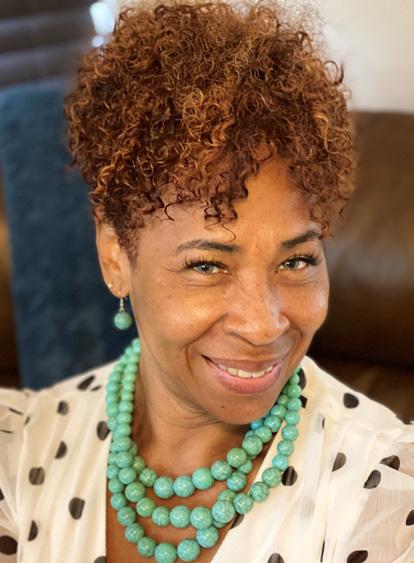
As leaders in NFPA we should all share in the enthusiasm of the work of NFPA’s
Diversity, Equity, and Inclusion Committee and use its guidance as a roadmap, not a delineated set of chronological tasks. Our work towards racial equity is urgent, and should start with NFPA, but it also does not have a set end date because this is a journey. There are times when we will be able to move quickly to resolve issues and times when we will need to slow down. For example, we may progress more slowly when resources do not allow us to do everything we have in mind, but we must begin right away, and never stop moving.
The DEI Committee’s work provides concrete diversity, equity, and inclusion strategies while putting equity at the forefront to be incorporated across all aspects of NFPA. Take a breath and reflect on what actions you can take to advance equity and racial justice to benefit the whole of NFPA as leaders.
One of the objectives of NFPA’s DEI Committee is to build a roadmap to DEI and increase awareness. NFPA should embrace the DEI Committee and instead of pushing it back, join hands to build an inclusive culture and improve team engagement. Have you read NFPA’s Position Statement on Diversity, Equity, and Inclusion that you adopted in 2018? If not, you should; the preamble states:
Melody S. John son is a graduate of Florida Metro politan Univer sity in 1993 with an Associate’s Degree in Para legal Studies. Melody became a Certified Para legal through the National Association of Legal Assistants (NALA) in 2006. For over 30+ years, Melody has worked in a variety of large document production, complex litigation, construction litigation and personal injury cases, etc. In 2007, Melody relocated from Orlando, Florida and began her employment with Heygood Orr & Pearson, where she was the Senior Lead Paralegal on hundreds of phar maceutical cases filed against the Fentanyl manufacturers In 2012, Melody joined Ra mey Law Firm running a 1+ attorney law firm as Senior Litigation Paralegal, Case Manager, and Office Administrator Melody is currently serving as President-Elect of the Dallas Area Paralegal Association (DAPA) In January, 2023, Melody will become the second Black President of DAPA.
“One of the greatest resources of the paralegal profession is the racial, ethnic, cultural, religious, national origin, Indigenous heritage, marital or parental status, socioeconomic status, disability status, military service or veteran status, sexual orientation or identity, age, gender, and social diversity of its members. The National Federation of Paralegal Associations, Inc. (“NFPA”) takes great pride in this diversity. NFPA welcomes, respects, promotes and supports diversity, equity, and inclusion in all aspects of its membership, in its vendors and contractors, and with paralegal educators, paralegal students, the paralegal profession, the legal profession, bar associations, and the courts.”
When a colleague asks you what you have planned for the evening or weekend, how do you answer? Is your response a four letter word? [Think c-o-o-k, w-as-h, d-u-s-t, w-o-r-k (some more).] How often do you reply, “I have a day/ night of fun ahead, including a nap”? Sounds like a dream. But should it be?
Each of us has what can be called our “happy place.” It often lies somewhere between two loads of laundry and the motion you are writing. I am talking about that space in time when you enjoy a hobby, friends, or something else. While the pursuits are different for everyone, many of us encounter the same problem: finding an hour or two to do it. Sigh. Things seemed so much simpler when we were younger. Yet childhood author Dr. Seuss even said, “. . . remember . . . life is a great balancing act.”1 Indeed it is.
For more reasons than one, it is important to schedule time for the fun things in life we enjoy. Daily would be ideal, but not likely feasible, so some point each week. Not only does this let us feel good, but it reduces stress, allows creativity to flow, promotes productivity, and encourages rest, relaxation and positivity. All of these things give us and our careers a little boost.
Taking periods of rest is not just a necessity for good health. Without it, the news is grim for those like us who make judgment calls and engage in interpersonal
life.8 All of us face challenges, deal with stress and need coping mechanisms. Add ‘taking time to enjoy your favorite activities’ as another point on the list of stress relievers like meditation and physical activity.
communication at work.2 Studies show “when we’re low on energy, we tend to misread those around us, typically in a more negative fashion,” and may act upon that misconception.3 Likewise, the overworked employee may be unable to see problems at hand and address them properly.4
Additional benefits from enjoying your “happy place” include productivity, creativity and positivity. These assets can materialize when you engage in your hobbies, particularly those you want to master. “[A]ctivities like these refresh your thinking and offer you the perspective that comes with distance,”5 while increasing productivity.6 Think about it, when you get out of a rut, you become more productive. Leisure pursuits “also enable you to reframe your time away from the office in terms of gain instead of loss.”7
Beyond the perks previously identified, another plus is the ability to make yourself “better equipped to cope with challenges,” whether at work or in other areas of your
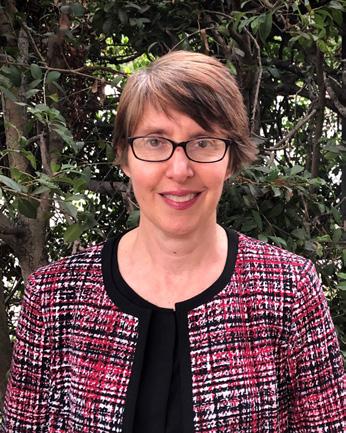
Now that you know the advantages, contemplate ways to ensure you reach the cheerful spot. For example, there will be work days when you can limit your labor to your scheduled hours. Take stock of how you handle the last half hour. Have you found yourself in the middle of a lengthy assignment? If so, when possible, consider switching gears 30 minutes before closing. Try instead to address quick, short tasks during that period. This may help you leave work behind as planned. It will open your schedule for your happy place.
Denise is a certified paralegal (AACP through AAPI) and newsletter author. She has over 15 years of experience with research, motions, and appellate writing. Her education is ongoing and includes her ABA approved bachelor’s paralegal degree. In her spare time, Denise enjoys DIY travel. She is in her happy place when on a trip near or far. You can find her at www.linkedin.com/ in/deniseblassak
1. #64 in the list of Motivational & Positive Quotes of the Day for Work in 2022, accessed Oct. 2, 2022 at <https:// teambuilding.com/blog/inspirationalwork-quotes>.
2. Carmichael, Sarah. The Research Is Clear: Long Hours Backfire for People and for Companies, Harvard Business Review (Aug. 19, 2015), accessed Sep. 13, 2022 at <https://hbr.org/2015/08/the-researchis-clear-long-hours-backfire-for-peopleand-for-companies>.
3. Friedman, Ron, Psychologist. Working Too Hard Makes Leading More Difficult, Harvard Business Review (Dec. 30, 2014), accessed Sep. 13, 2022 at <https:// hbr.org/2014/12/working-too-hardmakes-leading-more-difficult>, citing van der Helm et al. Sleep Deprivation Impairs the Accurate Recognition of Human Emotions (2010) University of California Berkeley.
4. Friedman, supra.
5. Ibid.
6. Indeed Editorial Team and Benefits of Taking a Break from Work to Reduce
Stress, published Oct. 18, 2021, updated Aug. 29, 2022, accessed Oct. 1, 2022 at <https://ca.indeed.com/career-advice/ career-development/taking-a-breakfrom-work>.
7. Friedman, supra, italics in original.
8. Indeed Editorial Team, supra.

